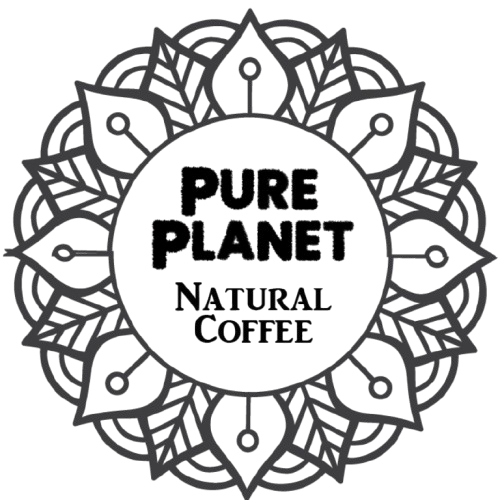
Natural Coffee Importers & Roasters
We exist to connect people directly to one exceptional Demeter Certified Peruvian coffee, grown properly, paid fairly, and roasted fresh and packed by hand.

Roasted Fresh Every Fortnight
Behind the scenes producing our speciality Coffee finished product. Roasting, Weighing, Packing all done by hand for the complete quality control

Chacra D'Dago, Peru
Our green coffee comes from Chacra D’Dago in Peru and is Demeter-certified — the highest global standard for biodynamic farming.
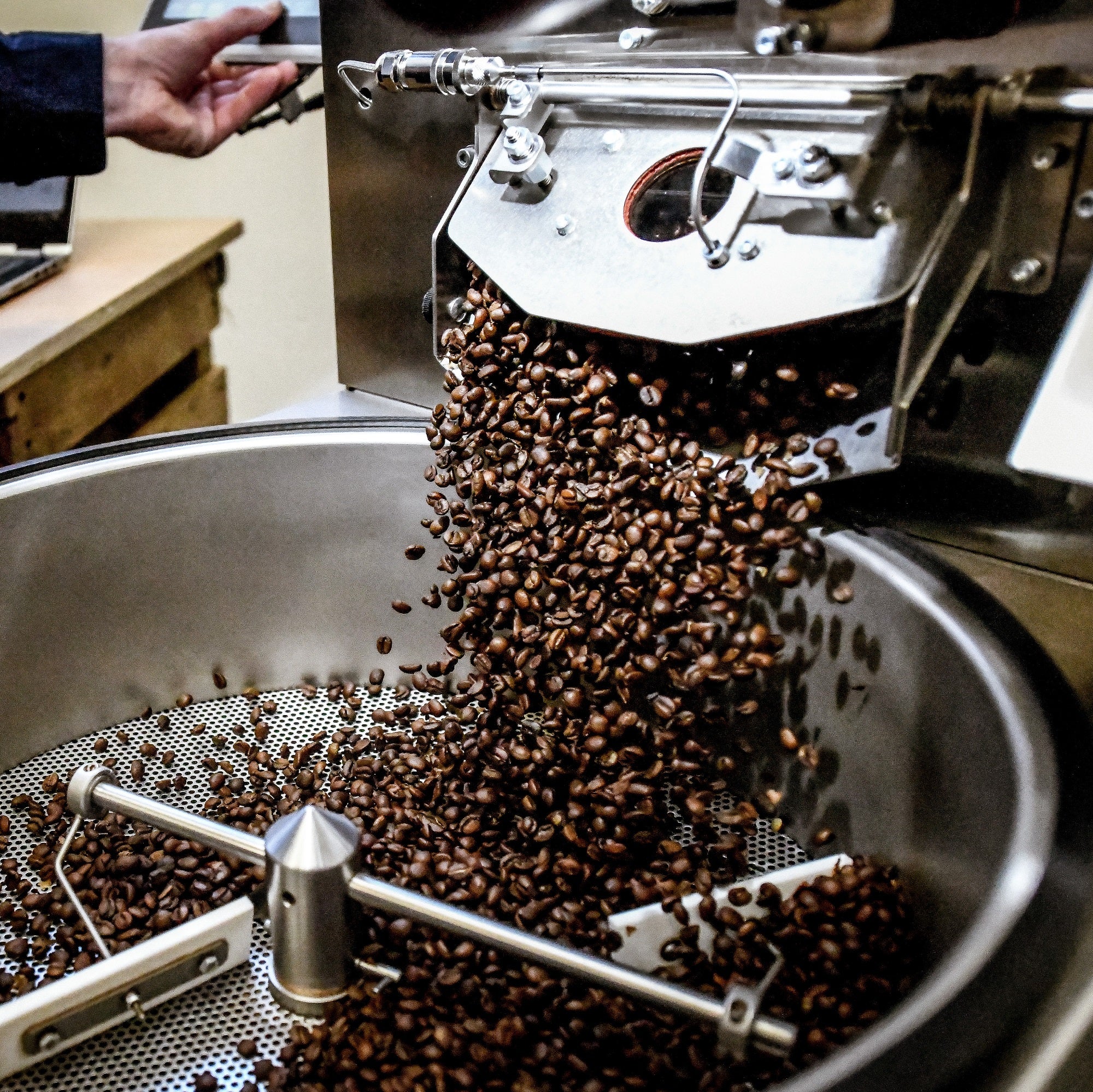
Freshly Roasted in Kent
We store and roast naturally-farmed Green beans in a ultra-clean facility, weighed and packed by hand to ensure consistently high quality. We choose not to certify our roasting because certification adds paperwork, not quality. Instead, we focus on freshness, transparency, and roasting by hand in small batches in Kent. Plus we do mould testing and go above and beyond Demeter standards.
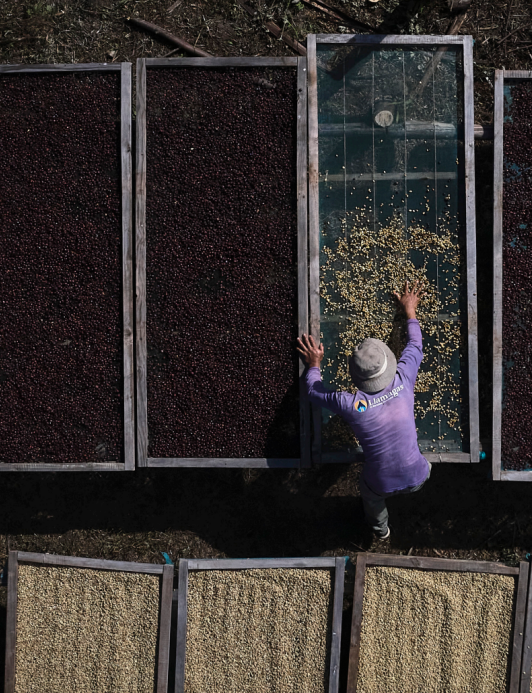
Blend of two naturally farmed Beans
Pureplanet Natural Coffee is a carefully crafted blend of two exceptional natural beans (Demeter Certified), sourced from high-altitude farms in Peru and Brazil.
- D’Dago, Peru – Grown at 1,800m above sea level, these Peruvian beans bring a bright, clean acidity with notes of red berries, dark chocolate, and caramel.
- Camocim, Brazil – Cultivated at 1,200m, this Brazilian coffee offers a smooth, well-rounded body with hints of nuts, cocoa, and a touch of citrus.
The result is a rich, complex, and naturally vibrant coffee with a balanced medium roast, highlighting the full depth of its origin while maintaining a clean, sustainable ethos. Perfect for those who appreciate both exceptional taste and ethical sourcing.
Our beans are stored, roasted and packaged by Corban Coffee Roasters, based in Sevenoaks, Kent.
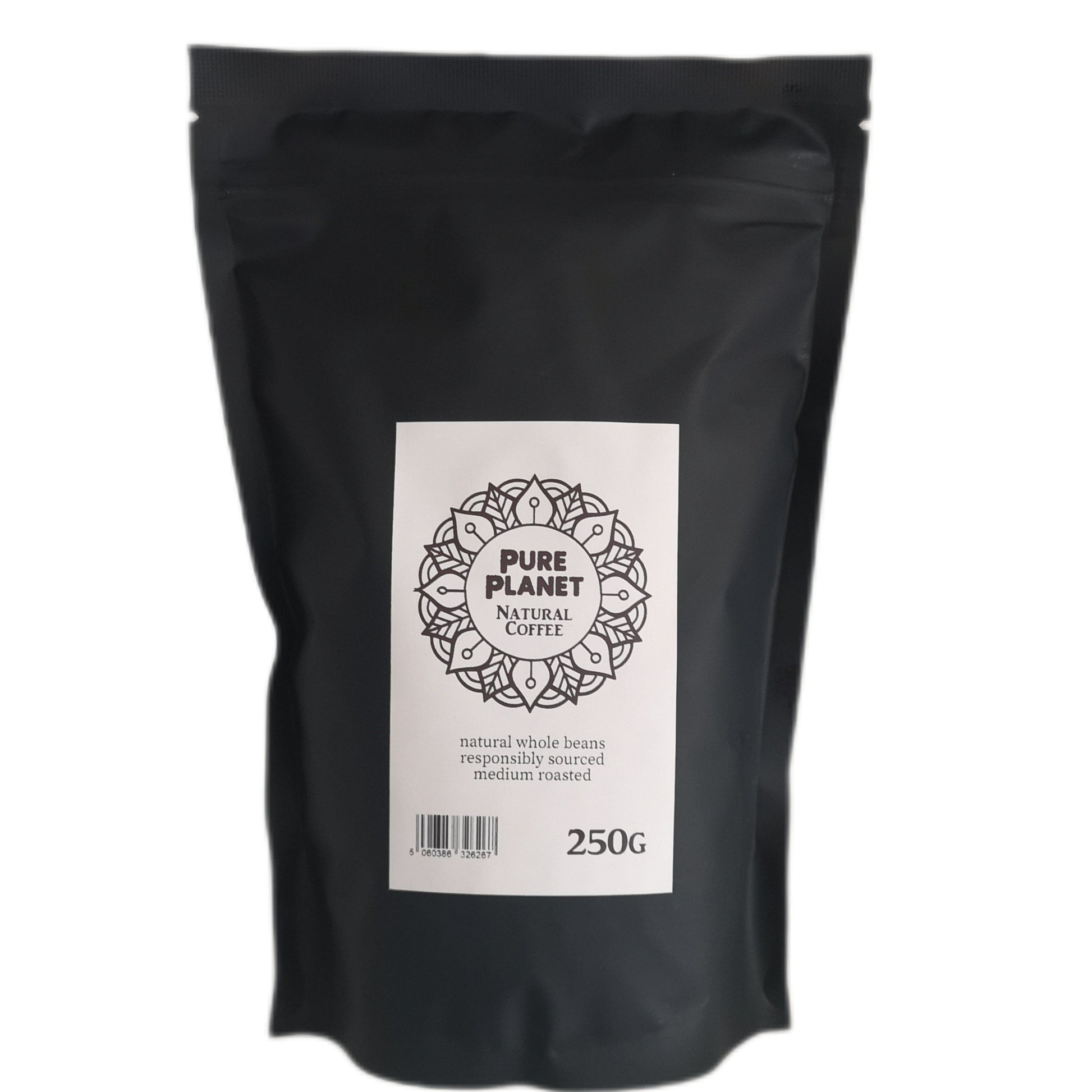
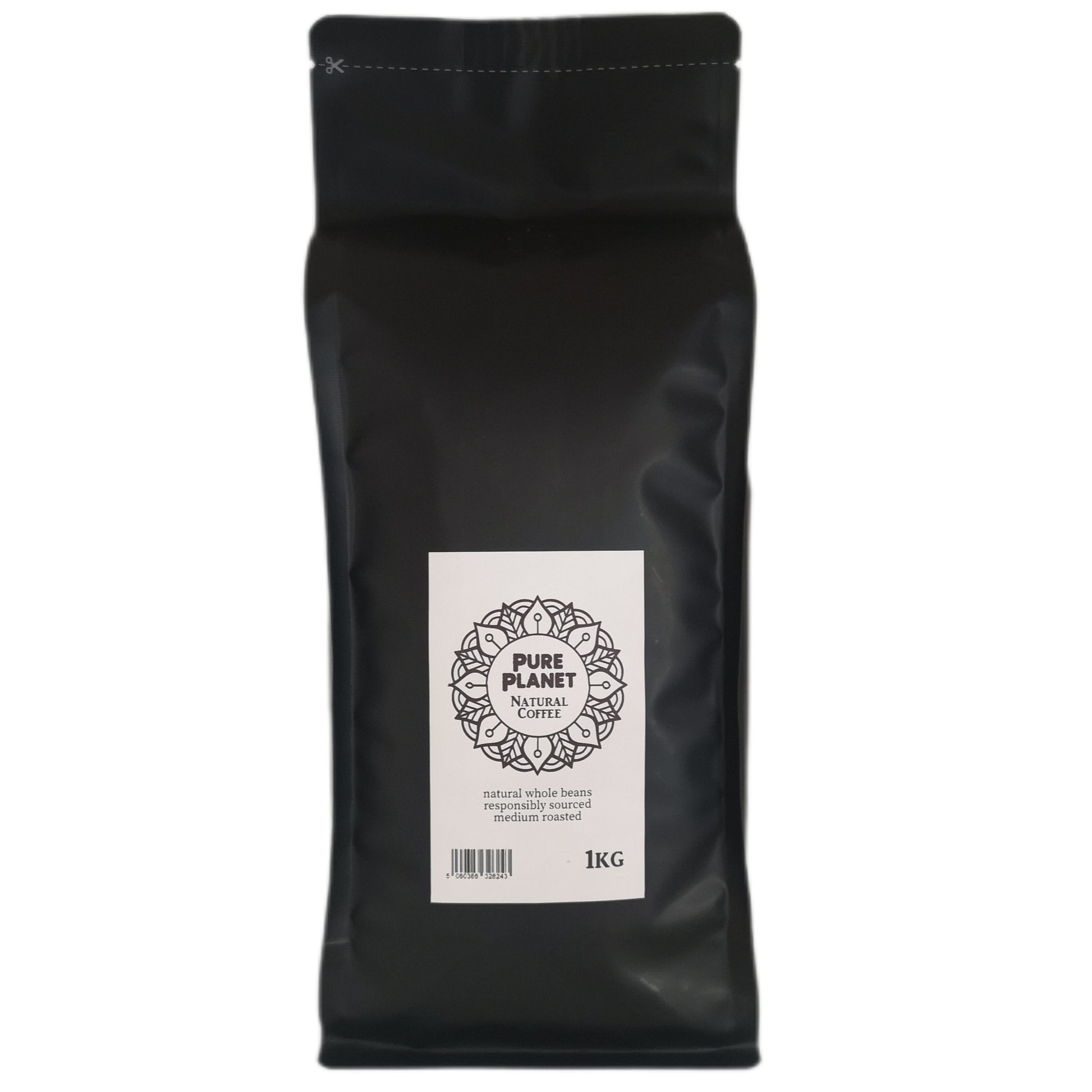
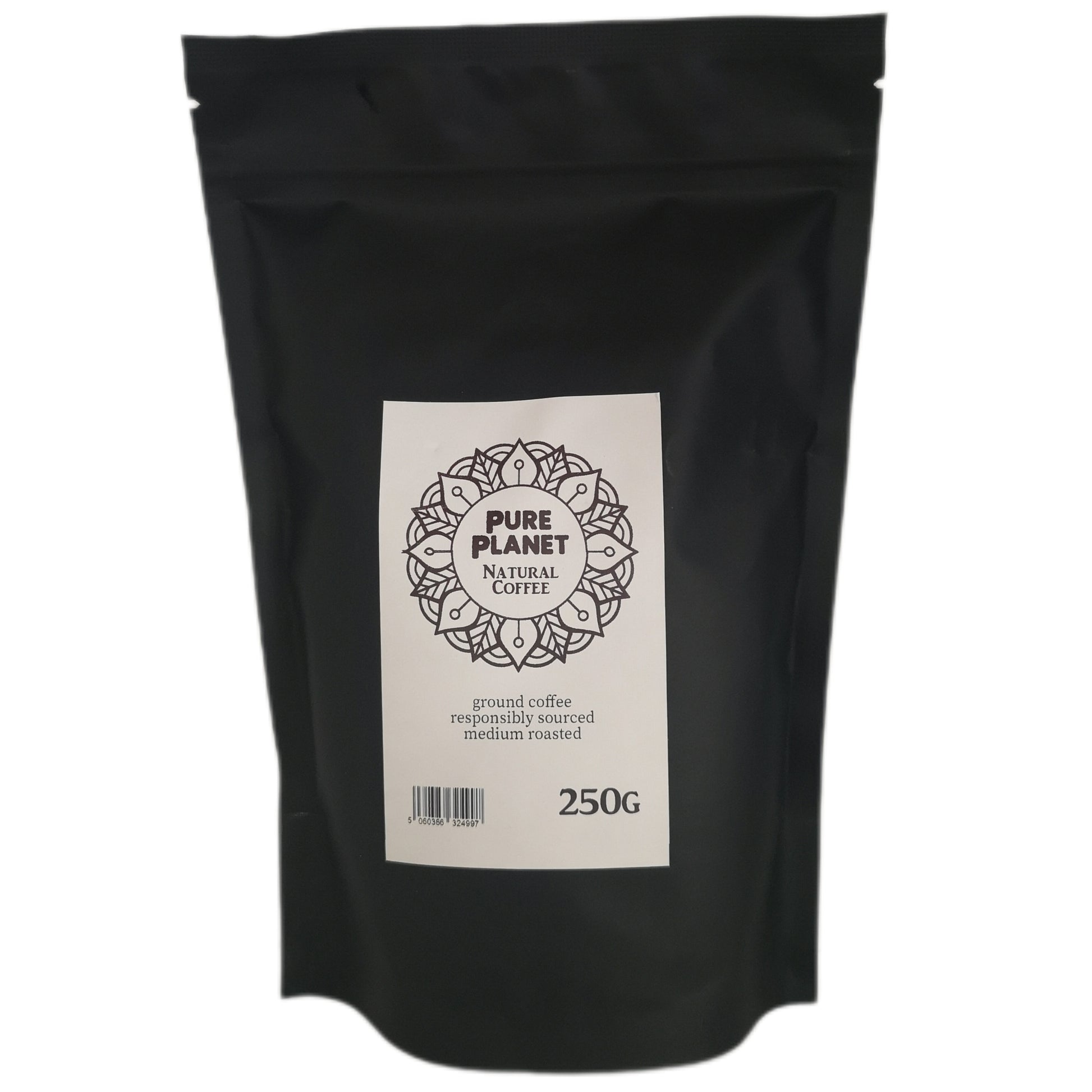
Pureplanet
Pureplanet Natural Speciality Roasted Coffee (Medium/Dark)
Share
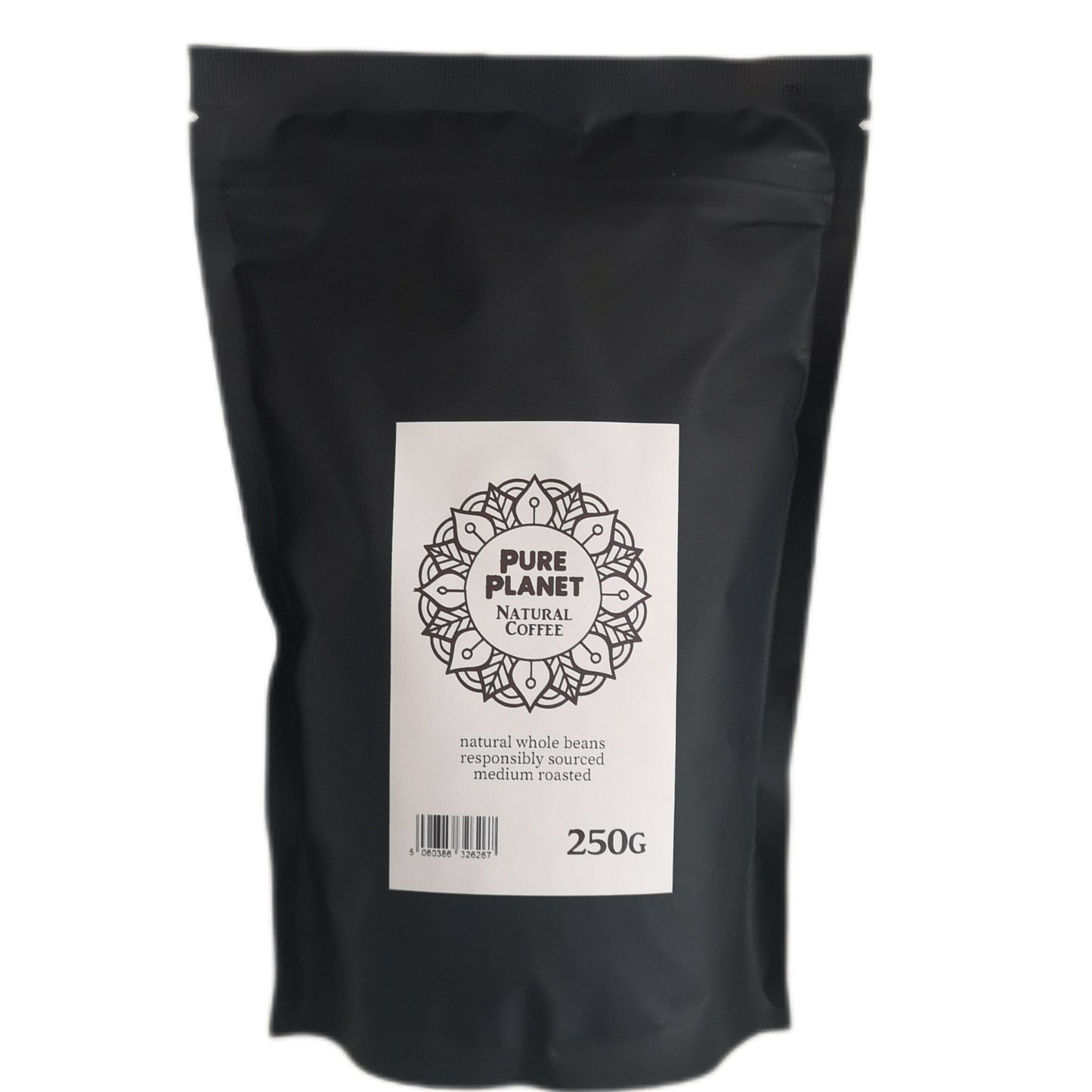
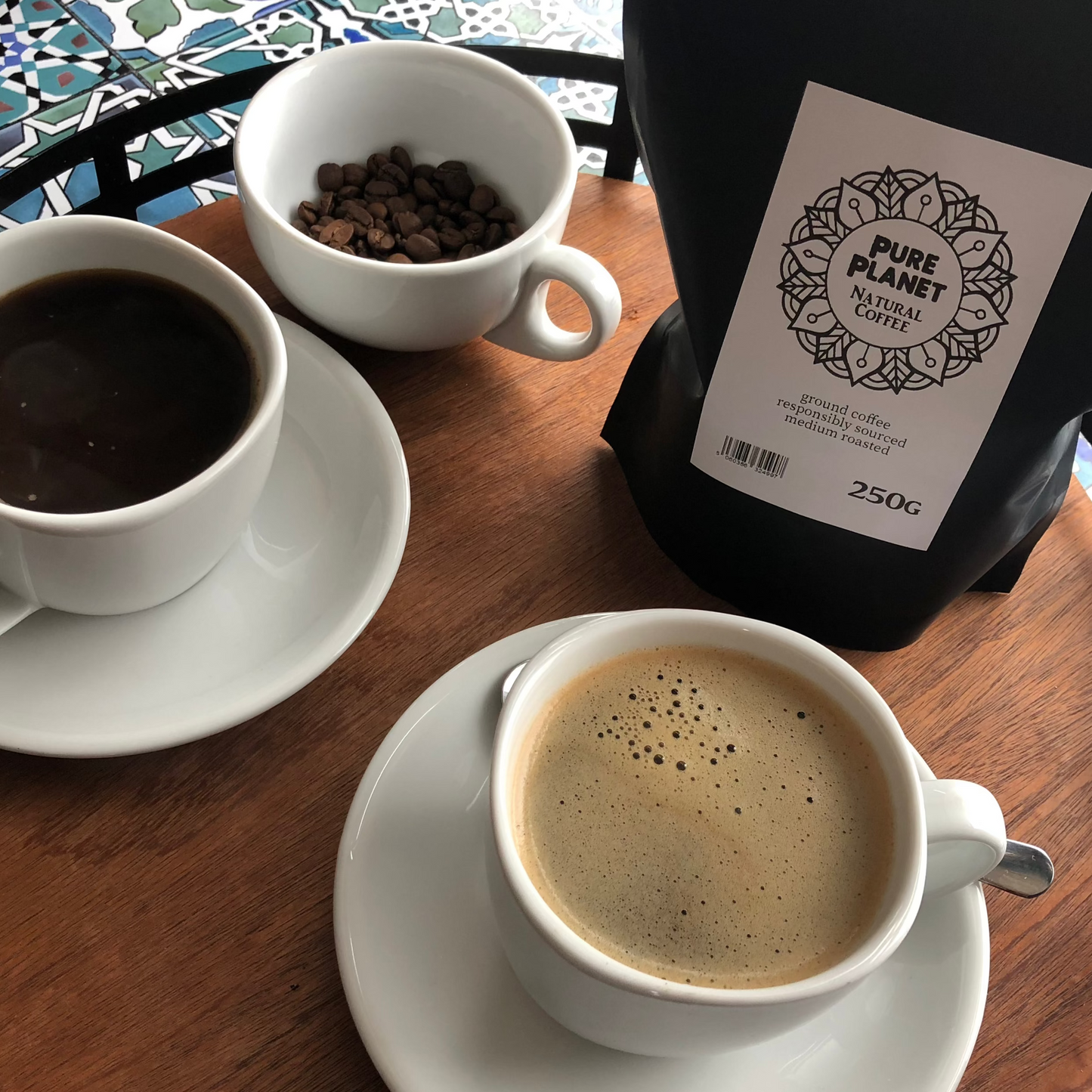
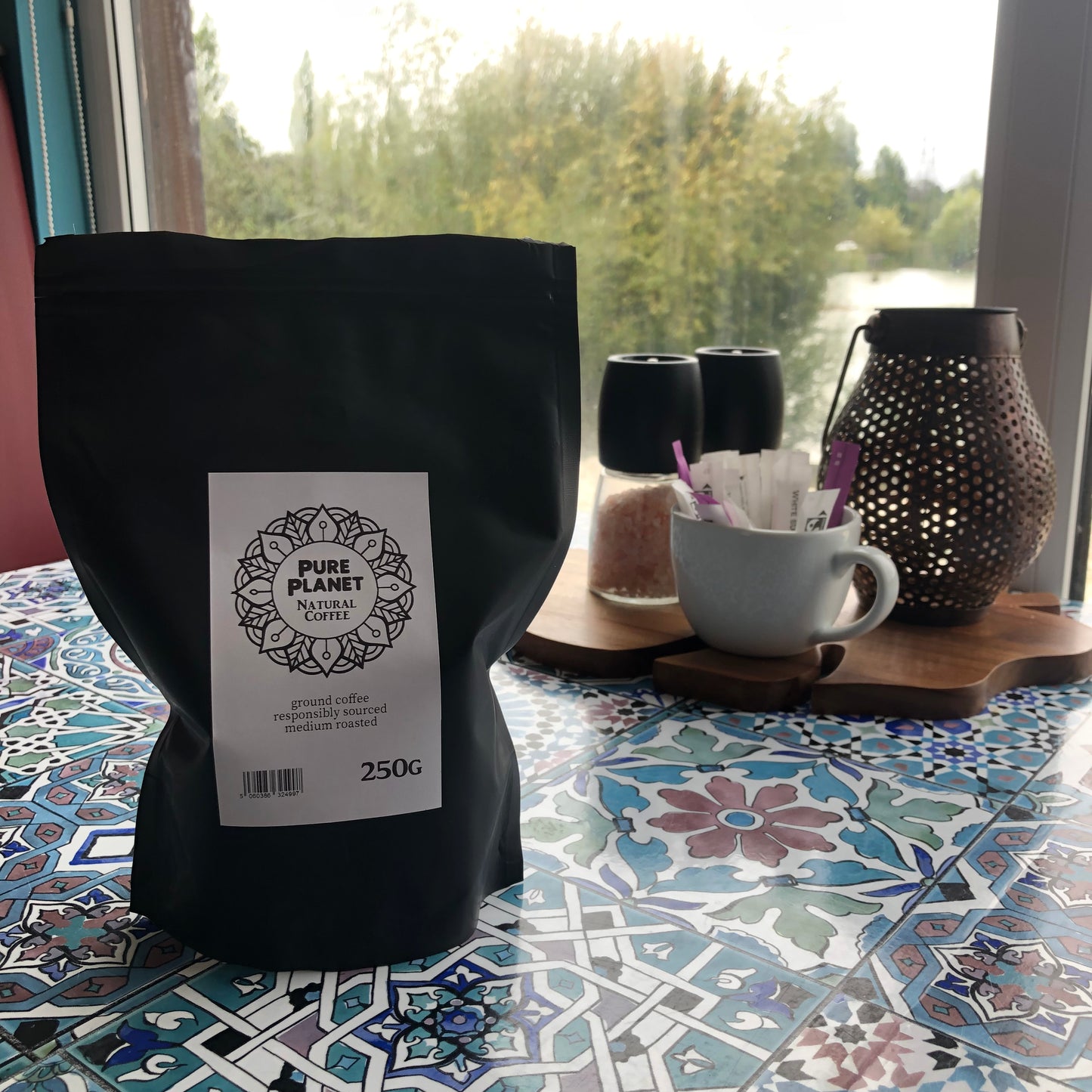
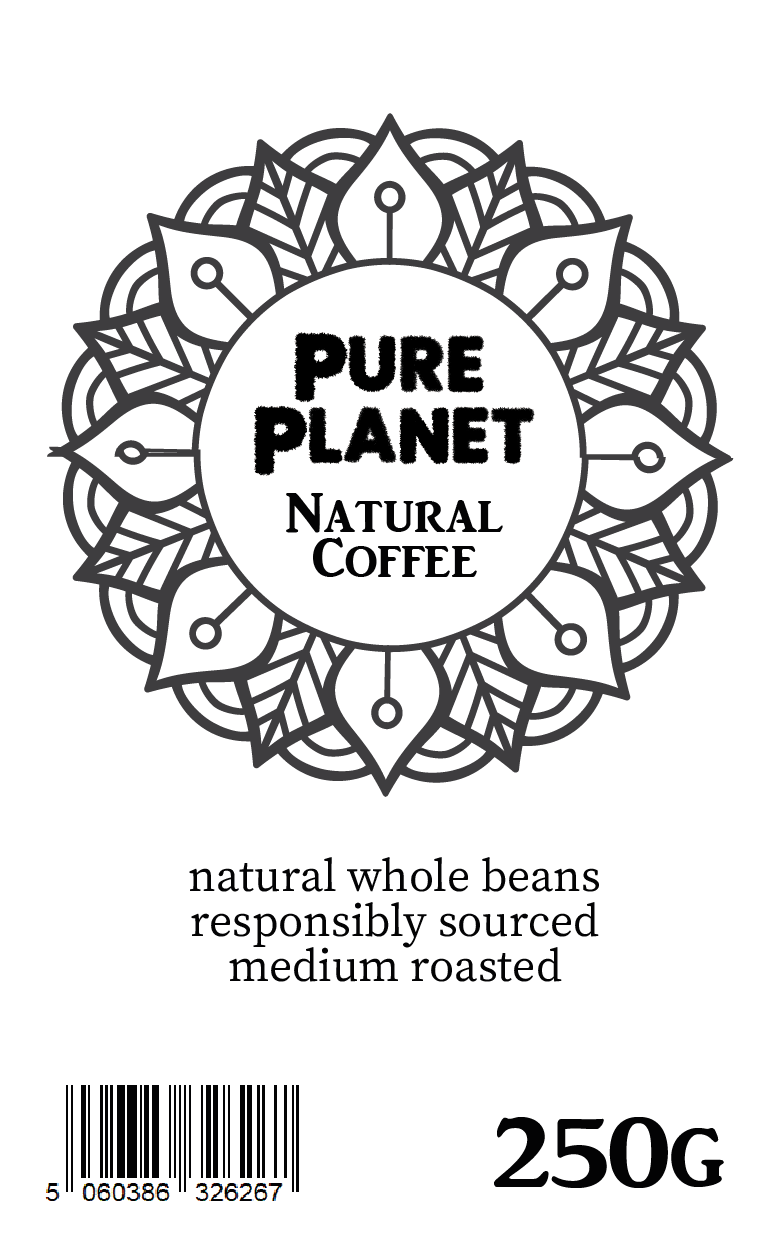
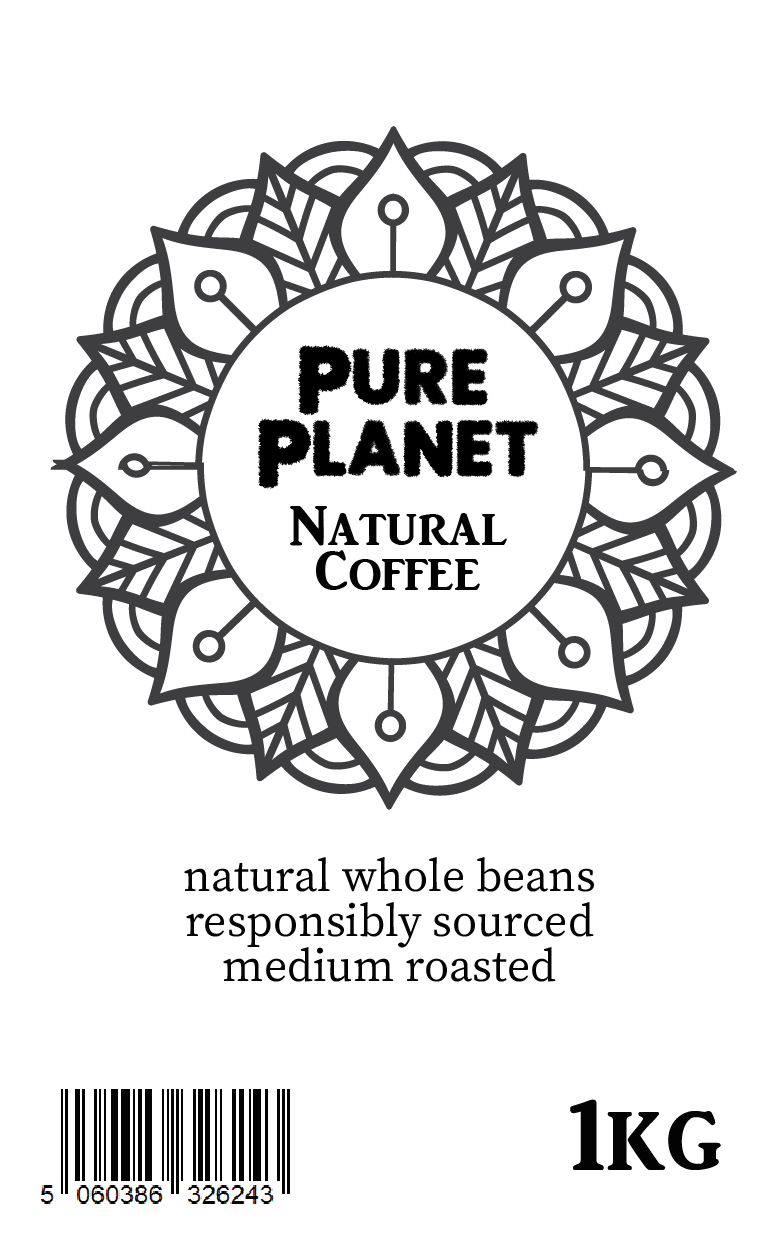
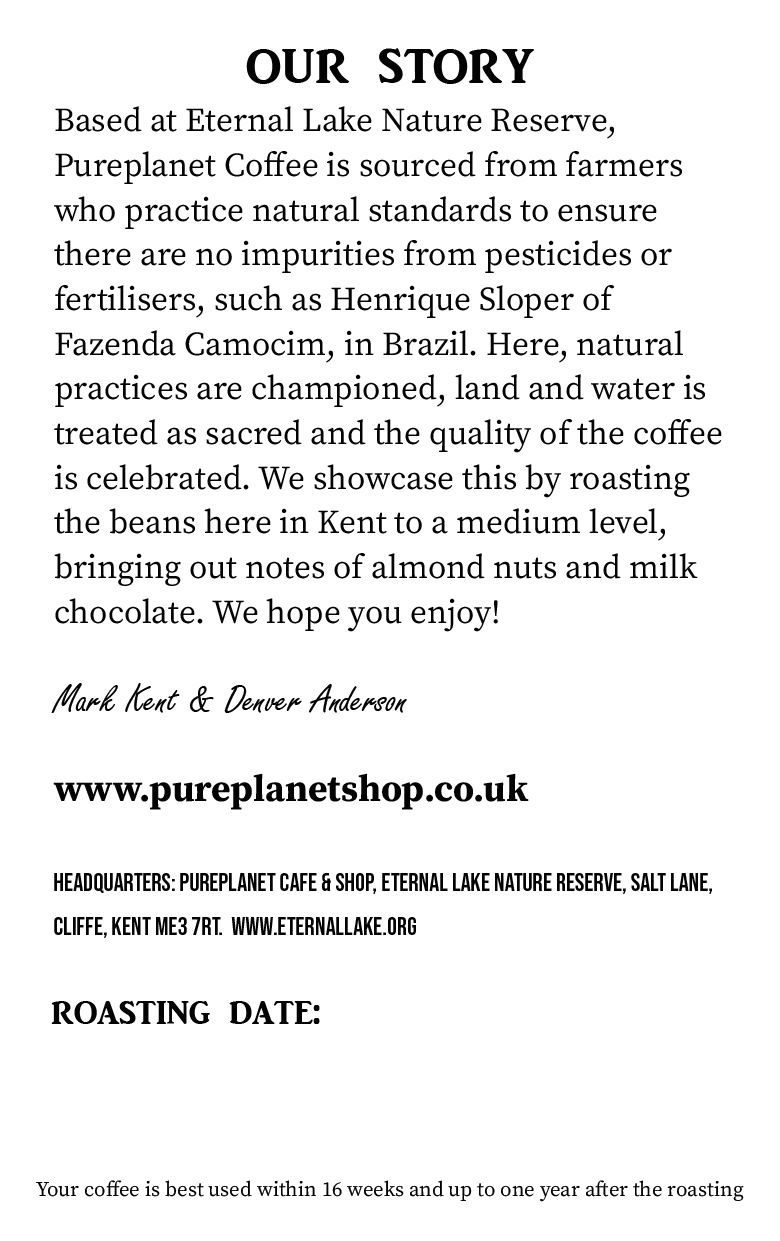
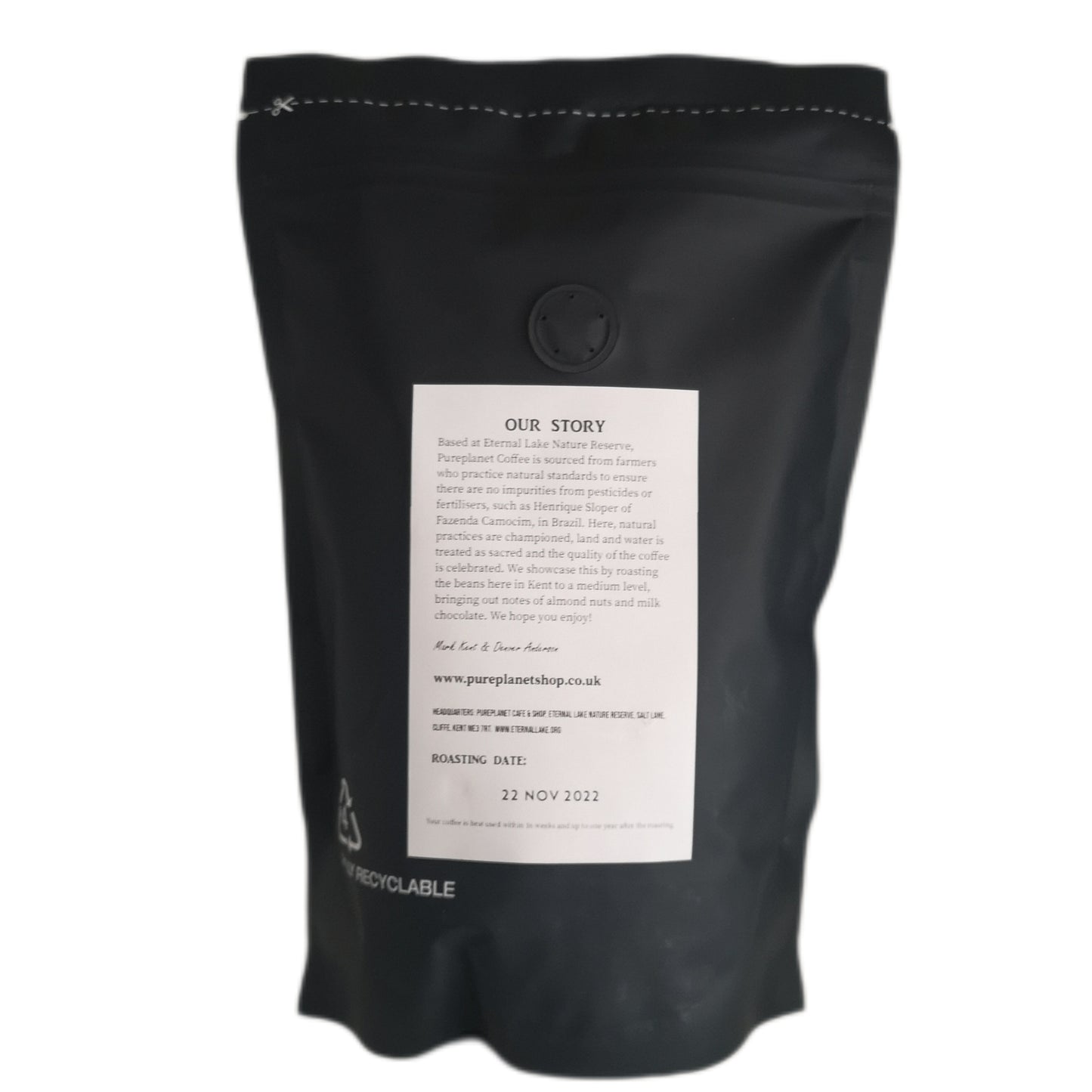
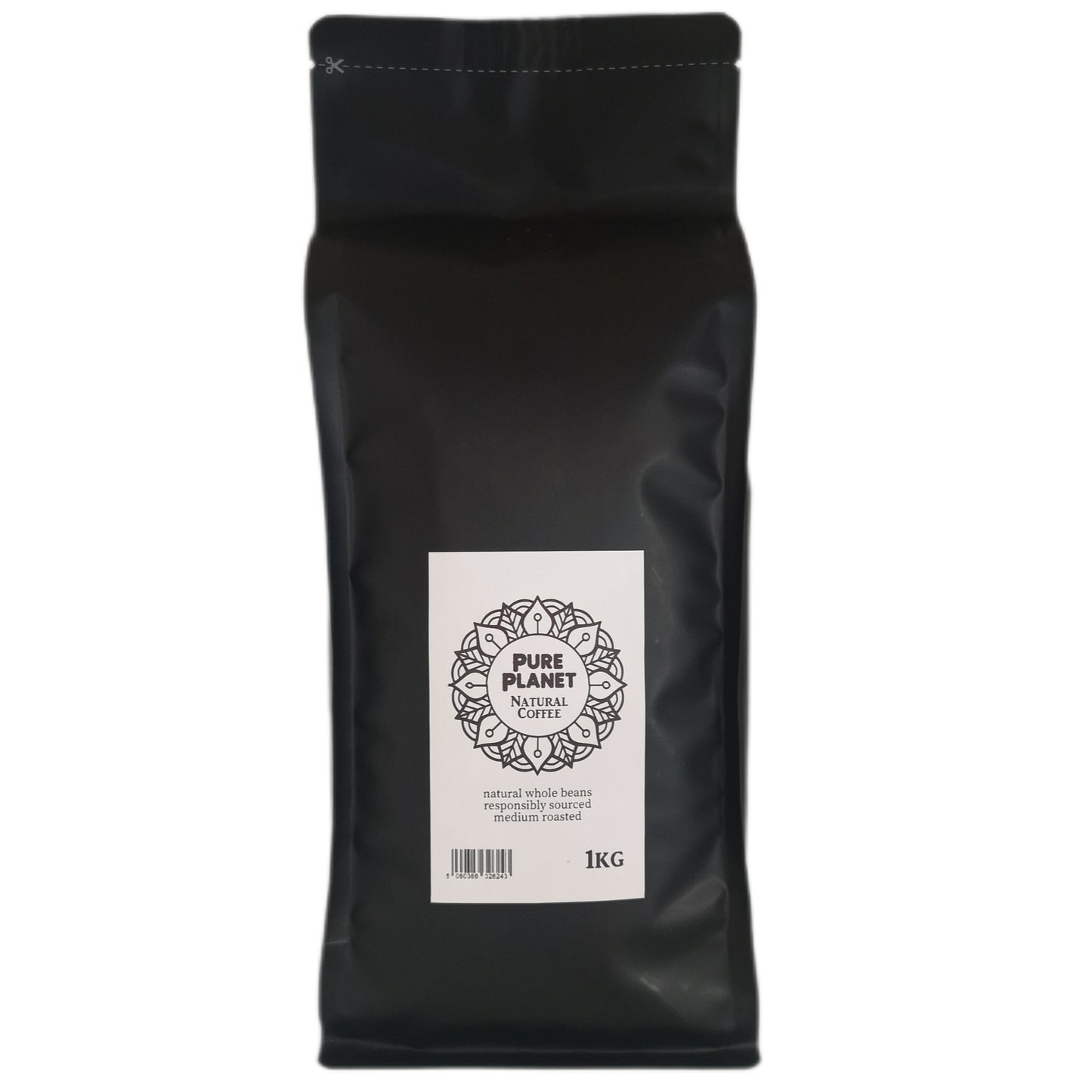
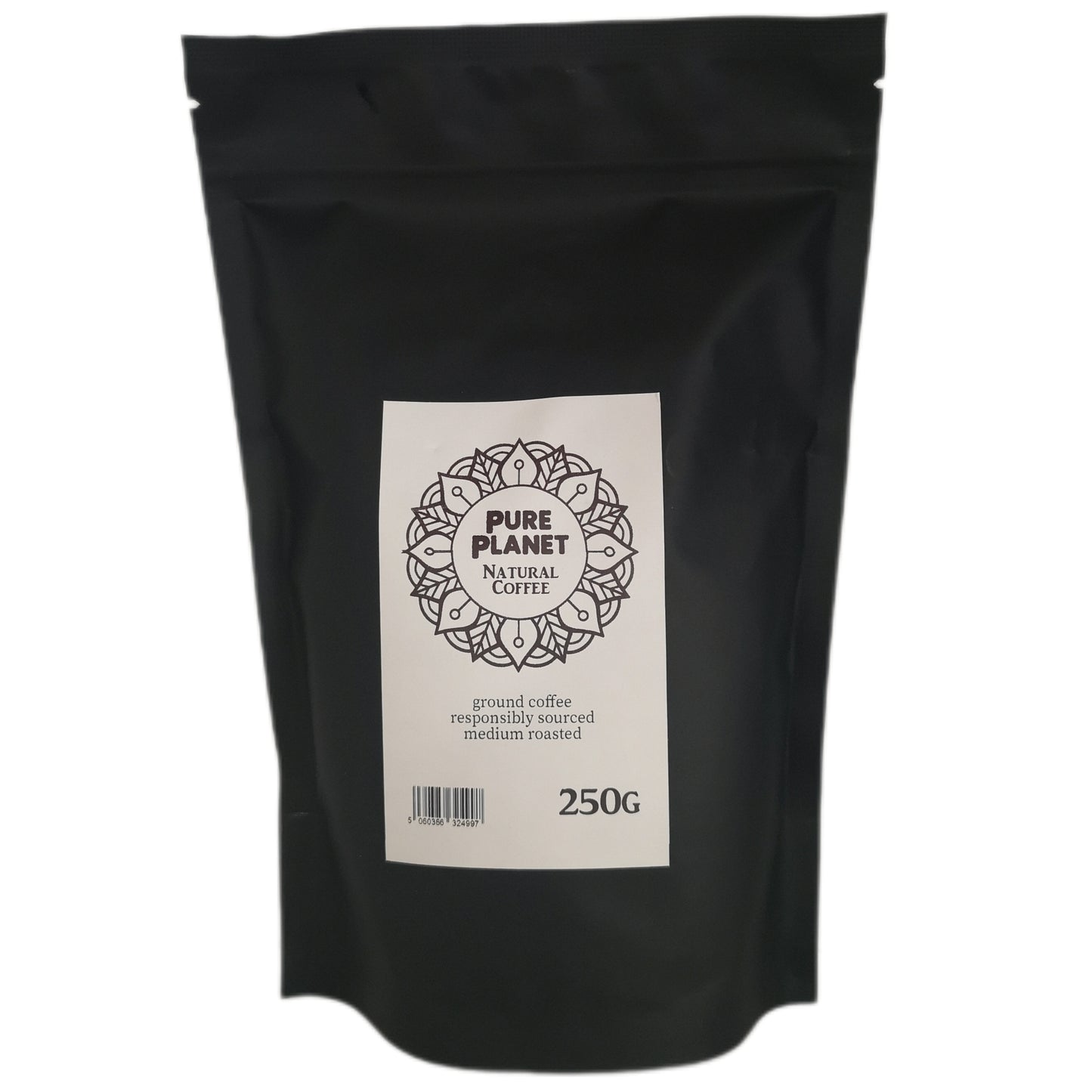
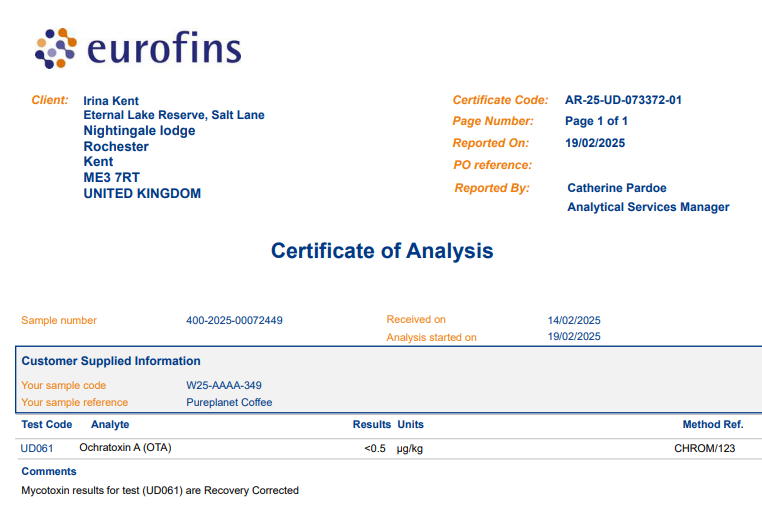
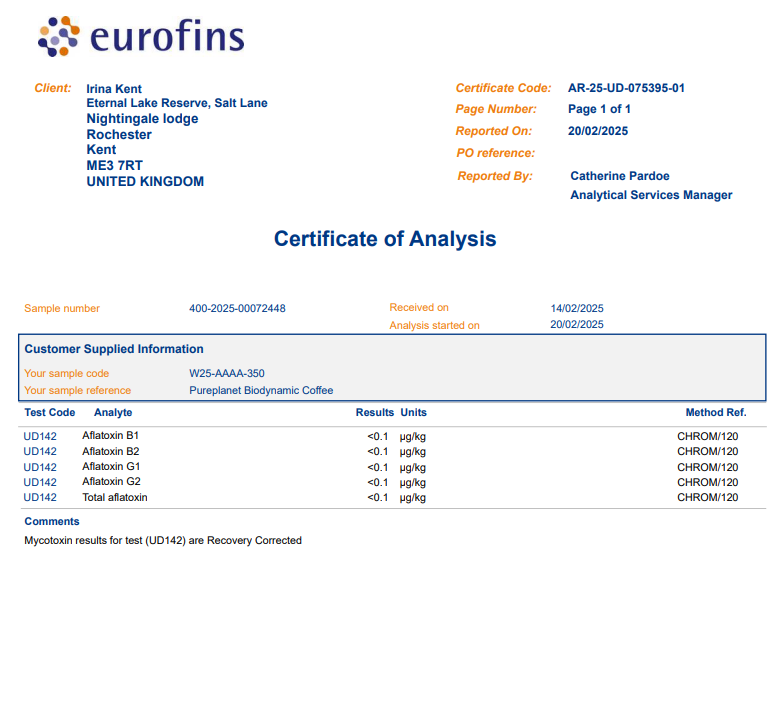
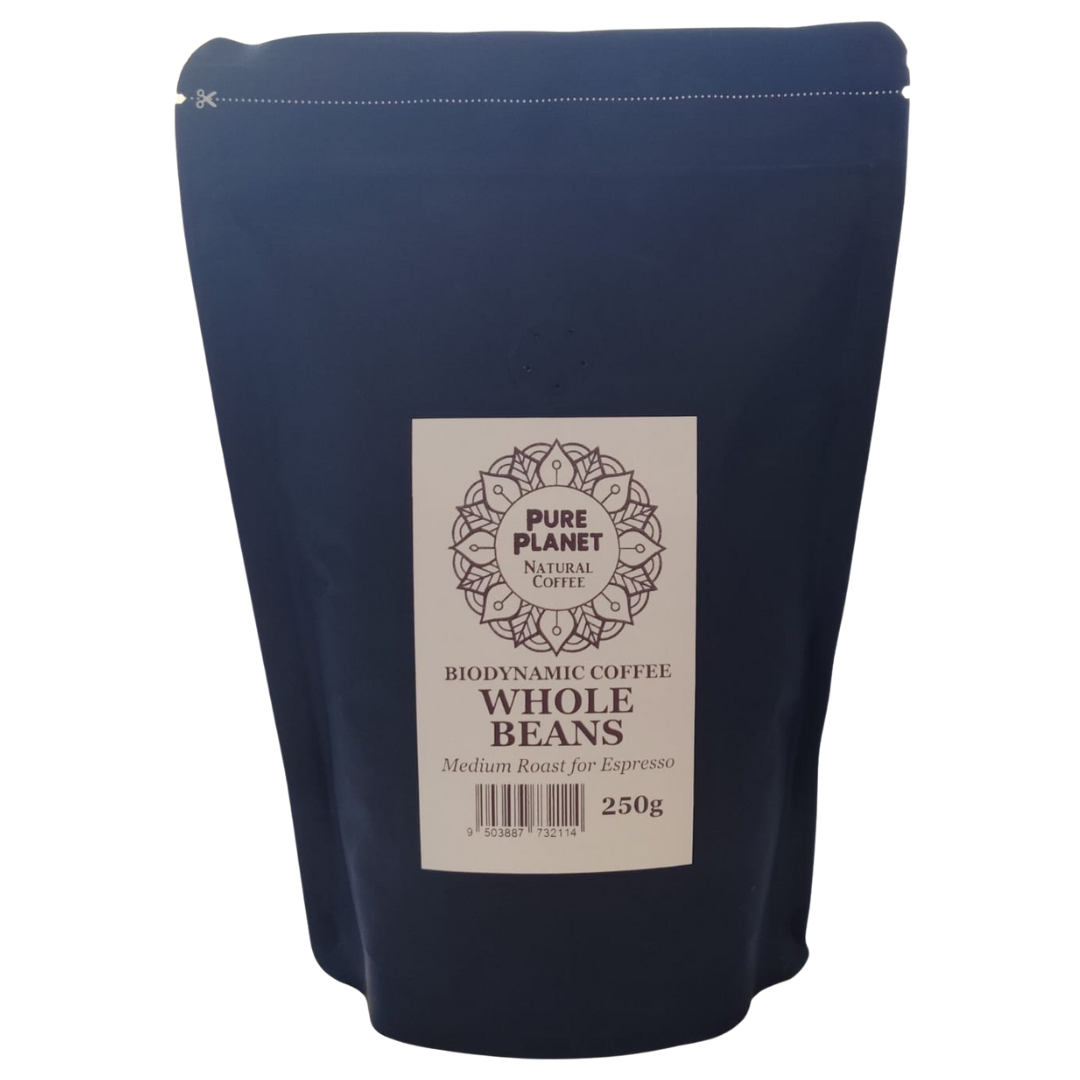
Pureplanet
Pureplanet Natural Expresso Roast Single Origin Coffee Beans (Medium)
Share
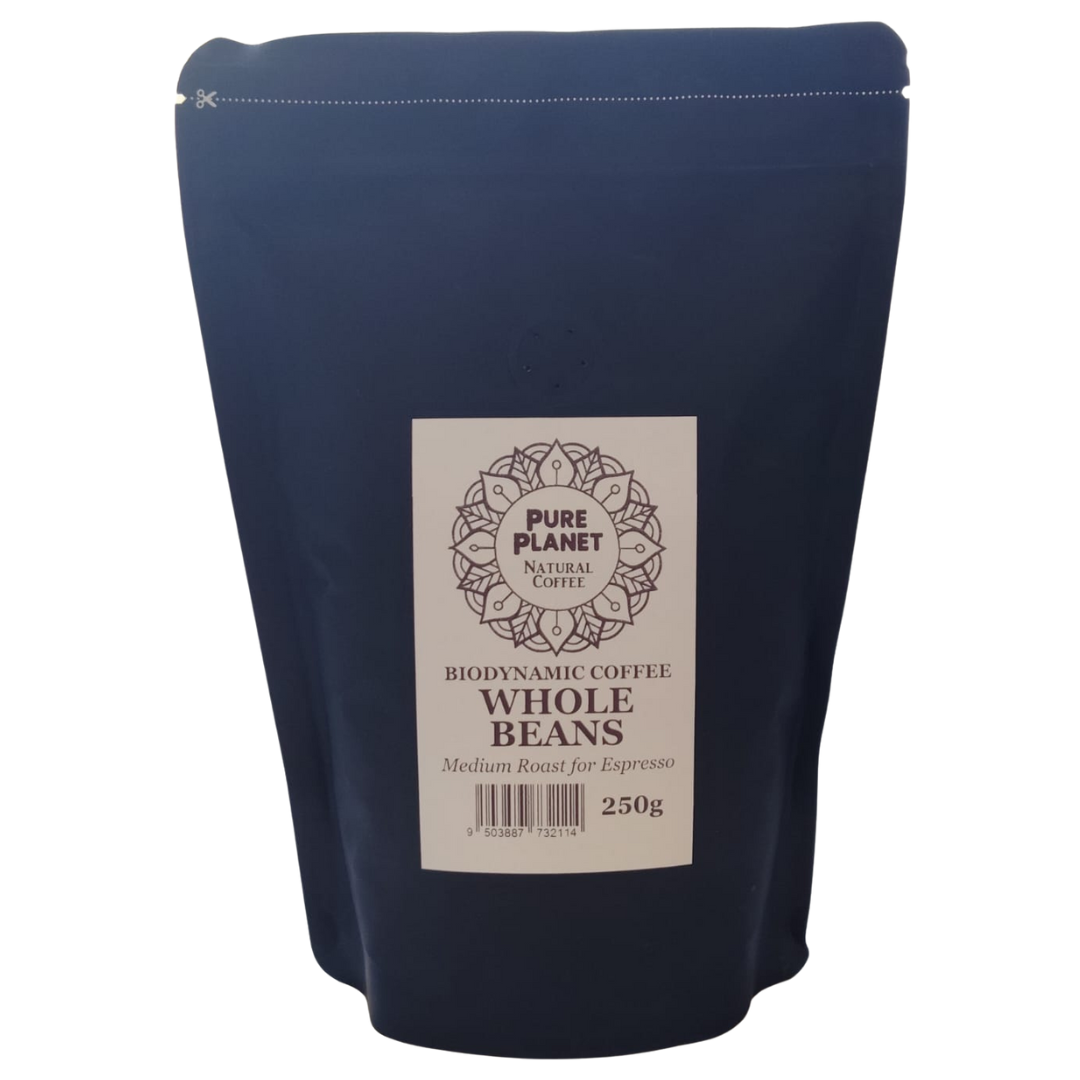
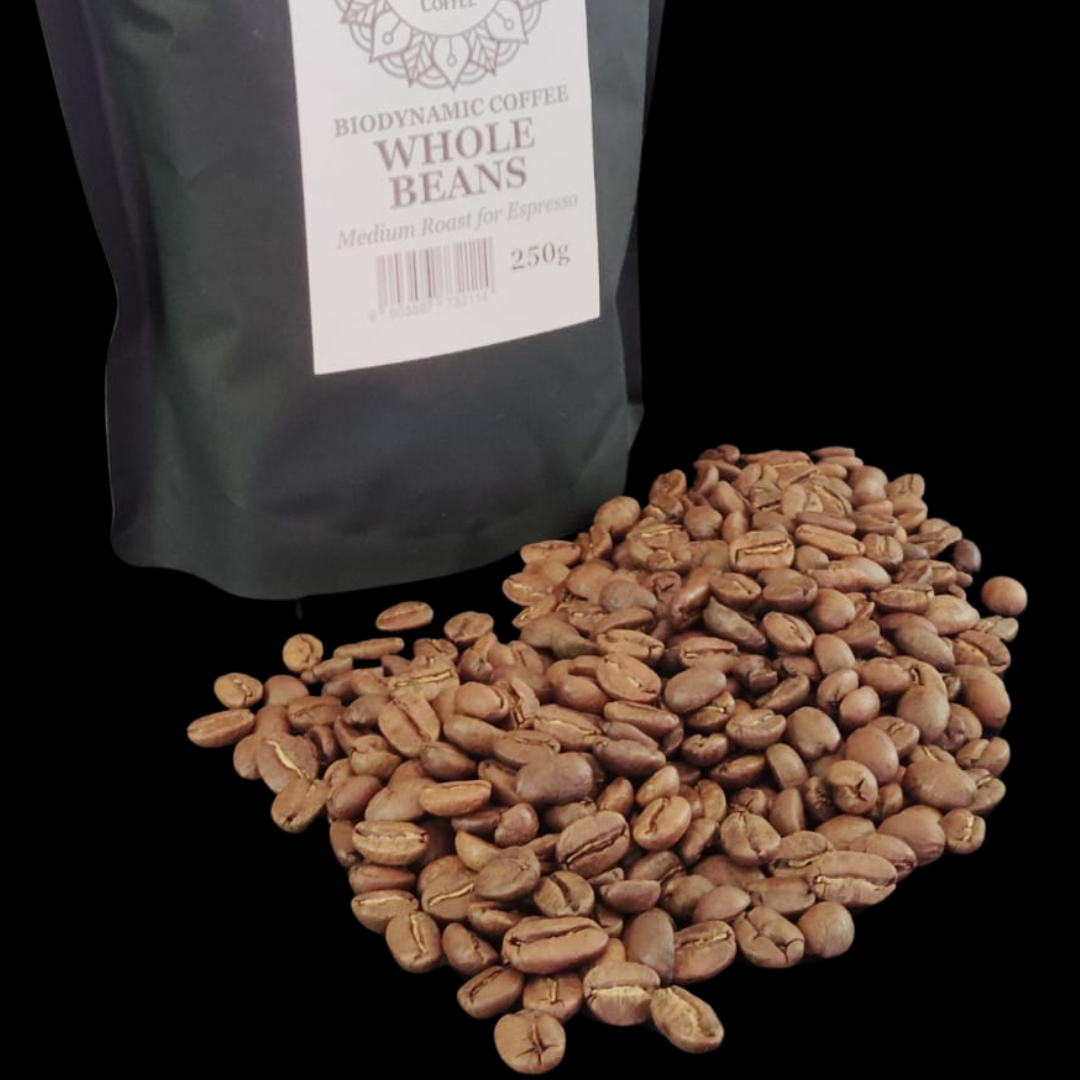

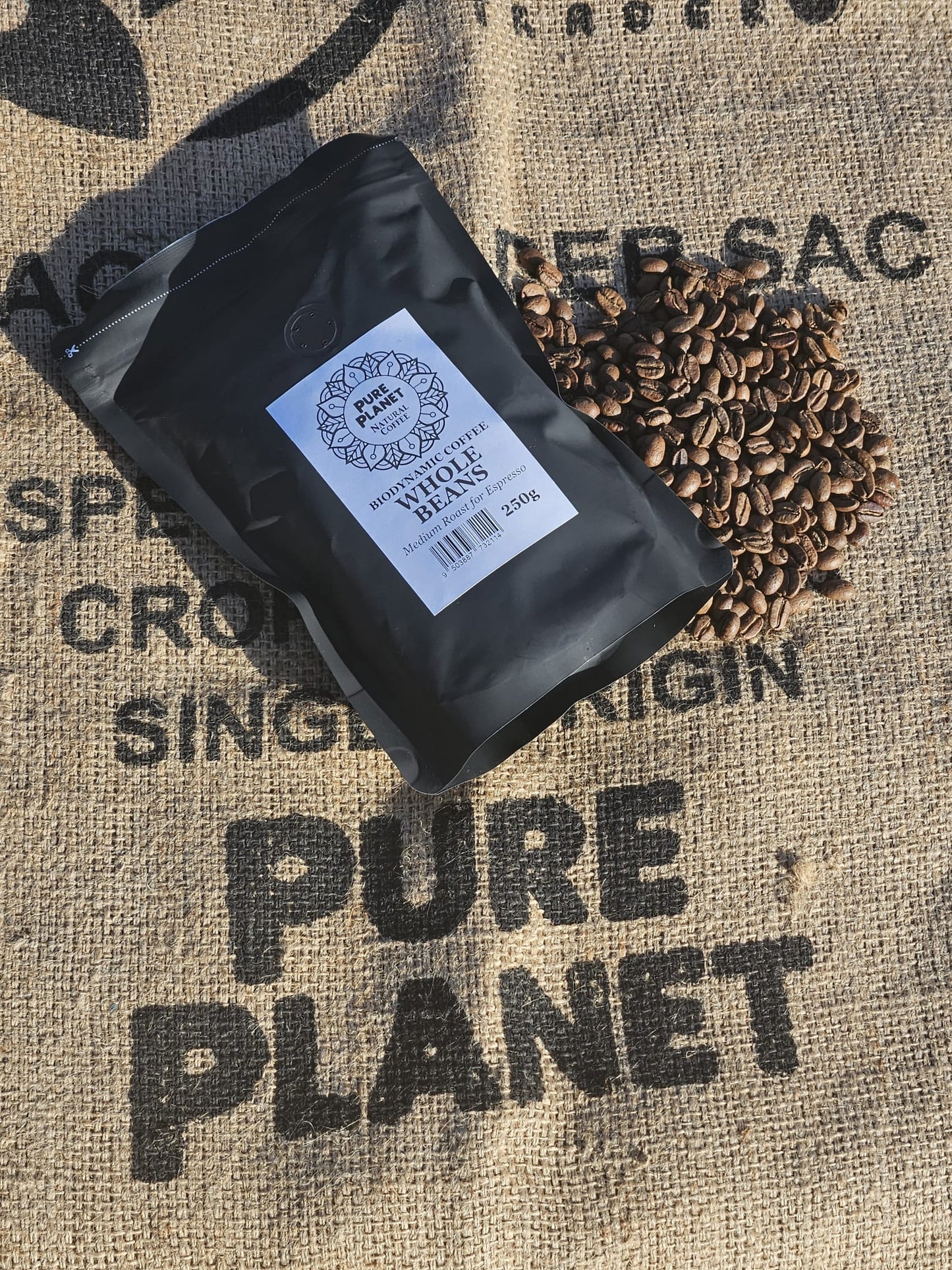
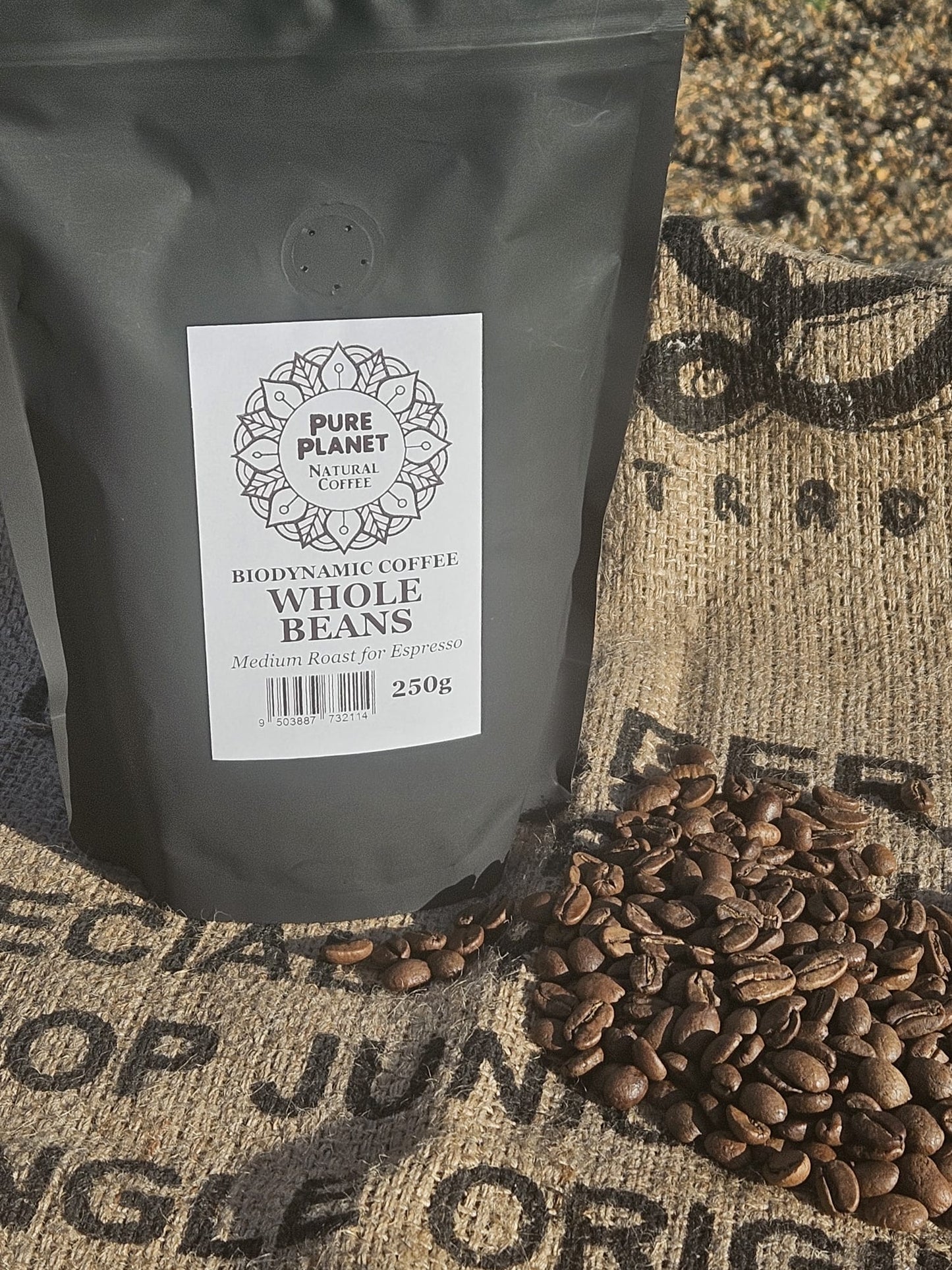
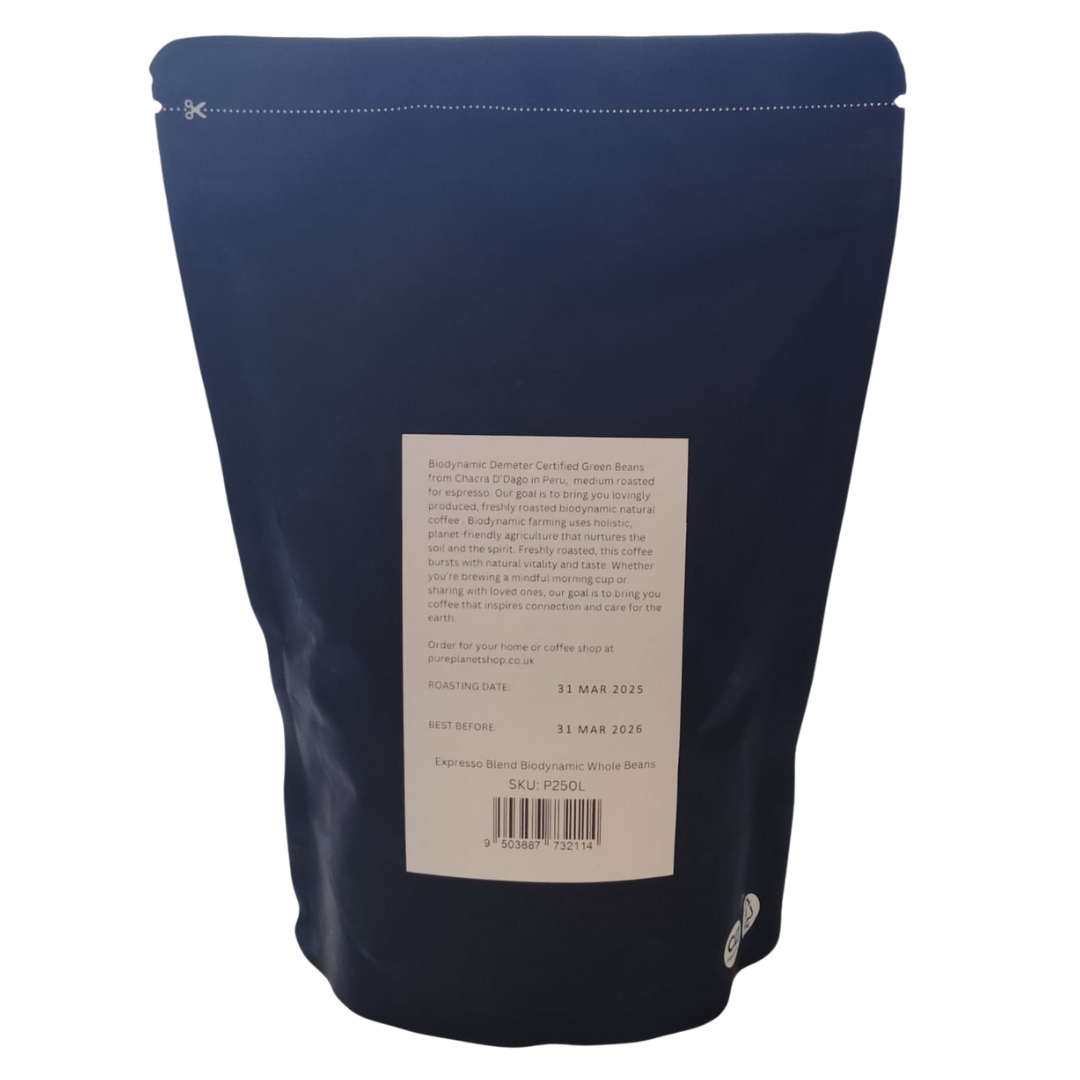

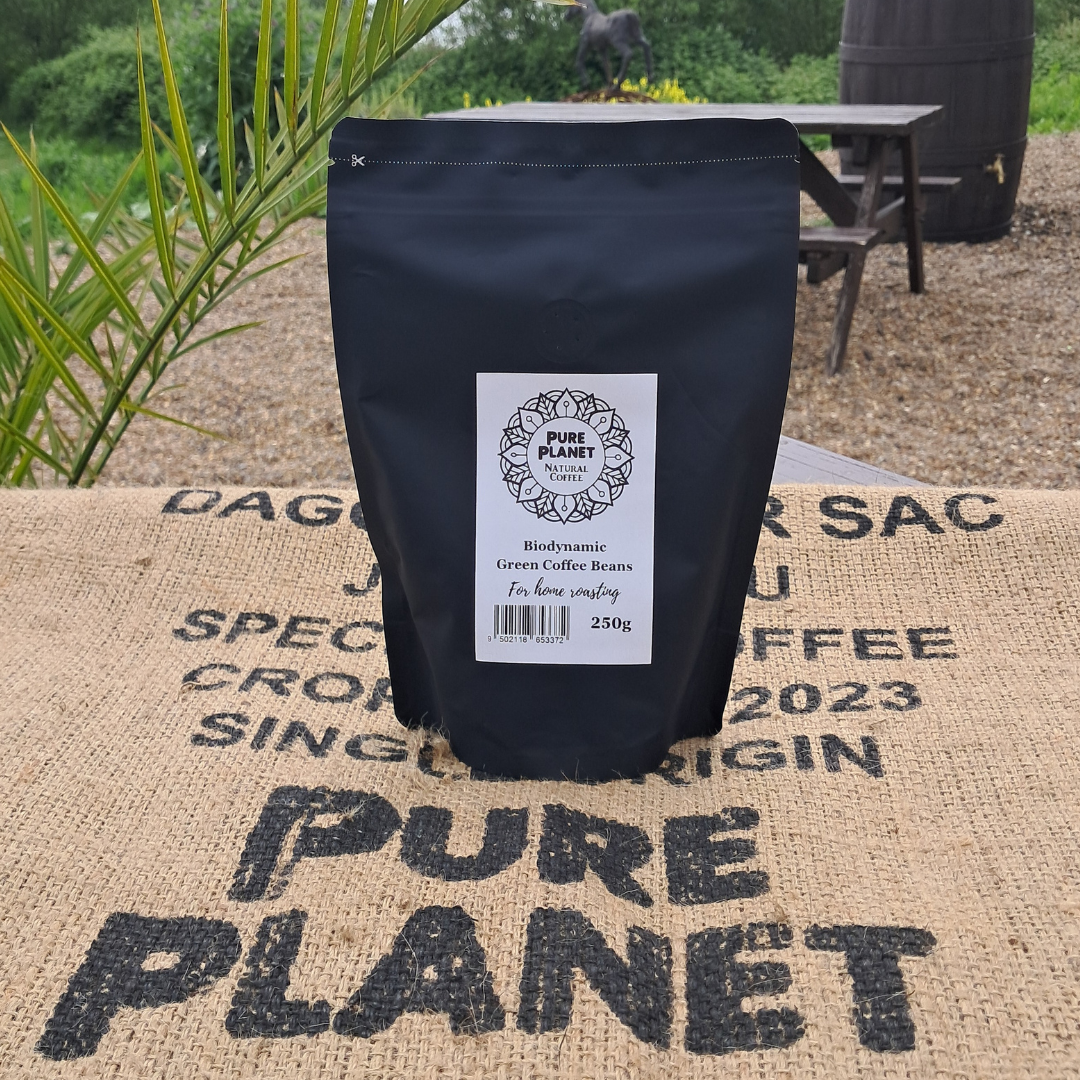
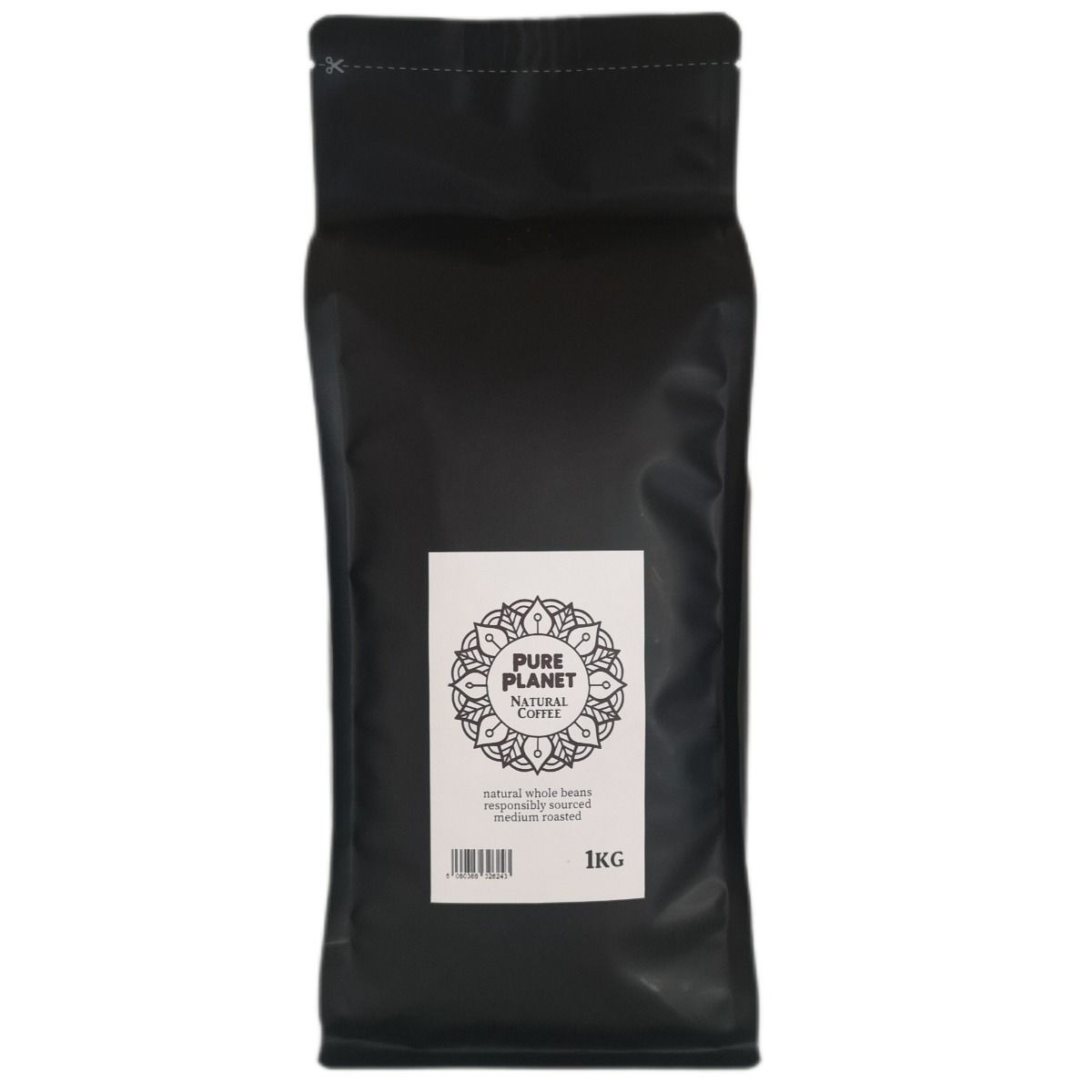
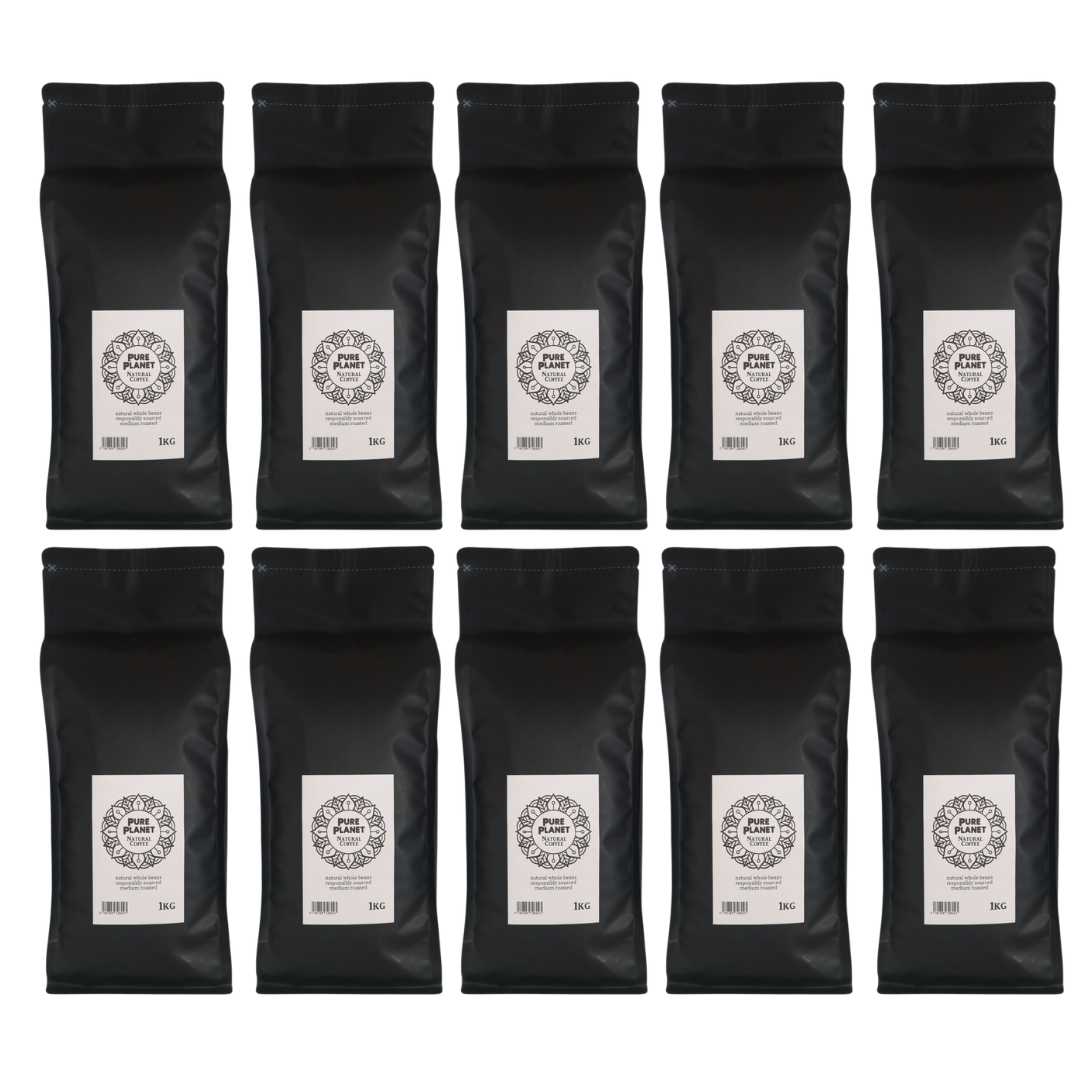
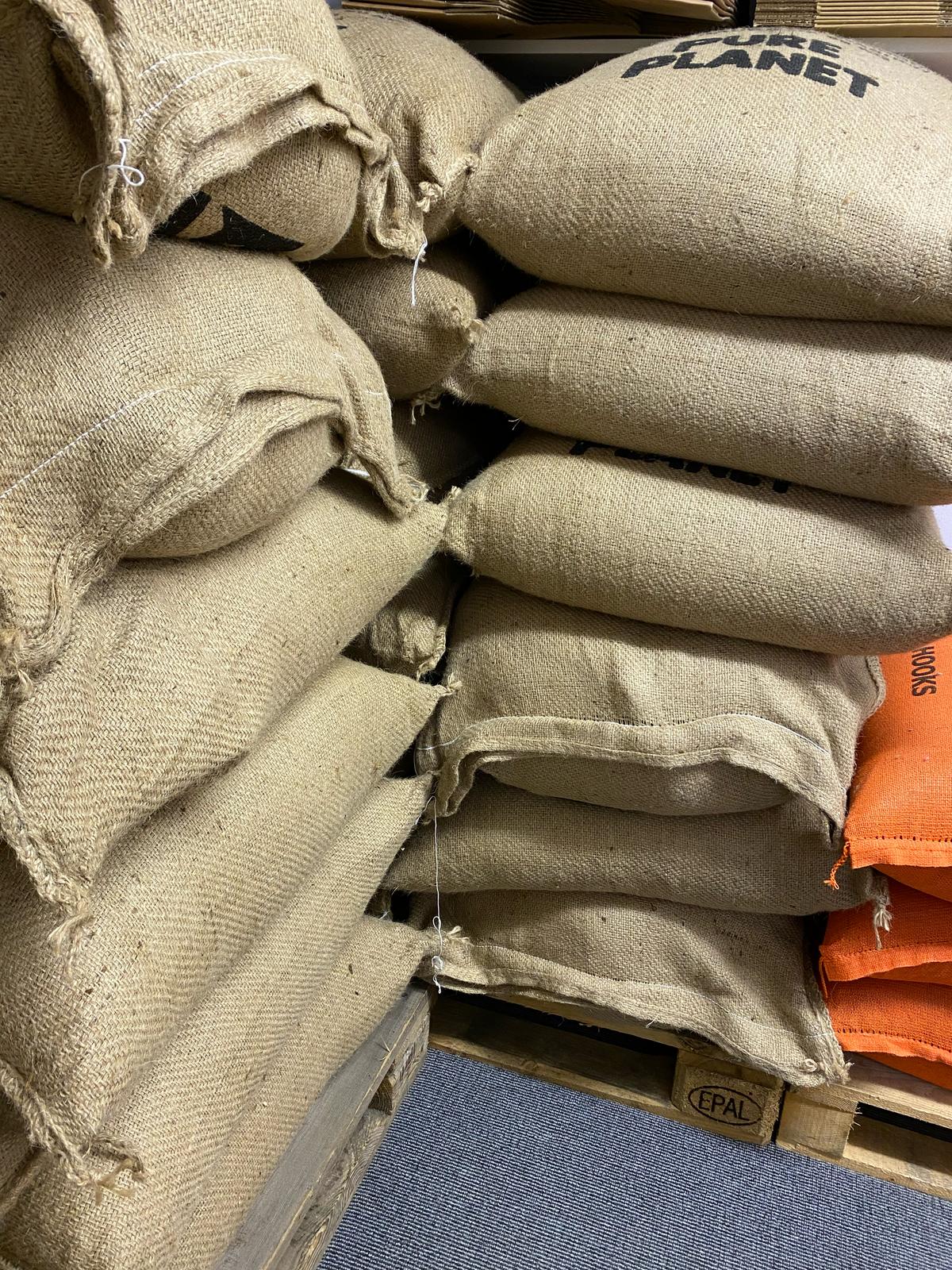
Pureplanet Shop
Green Natural Coffee Beans 2024 Crop
Share
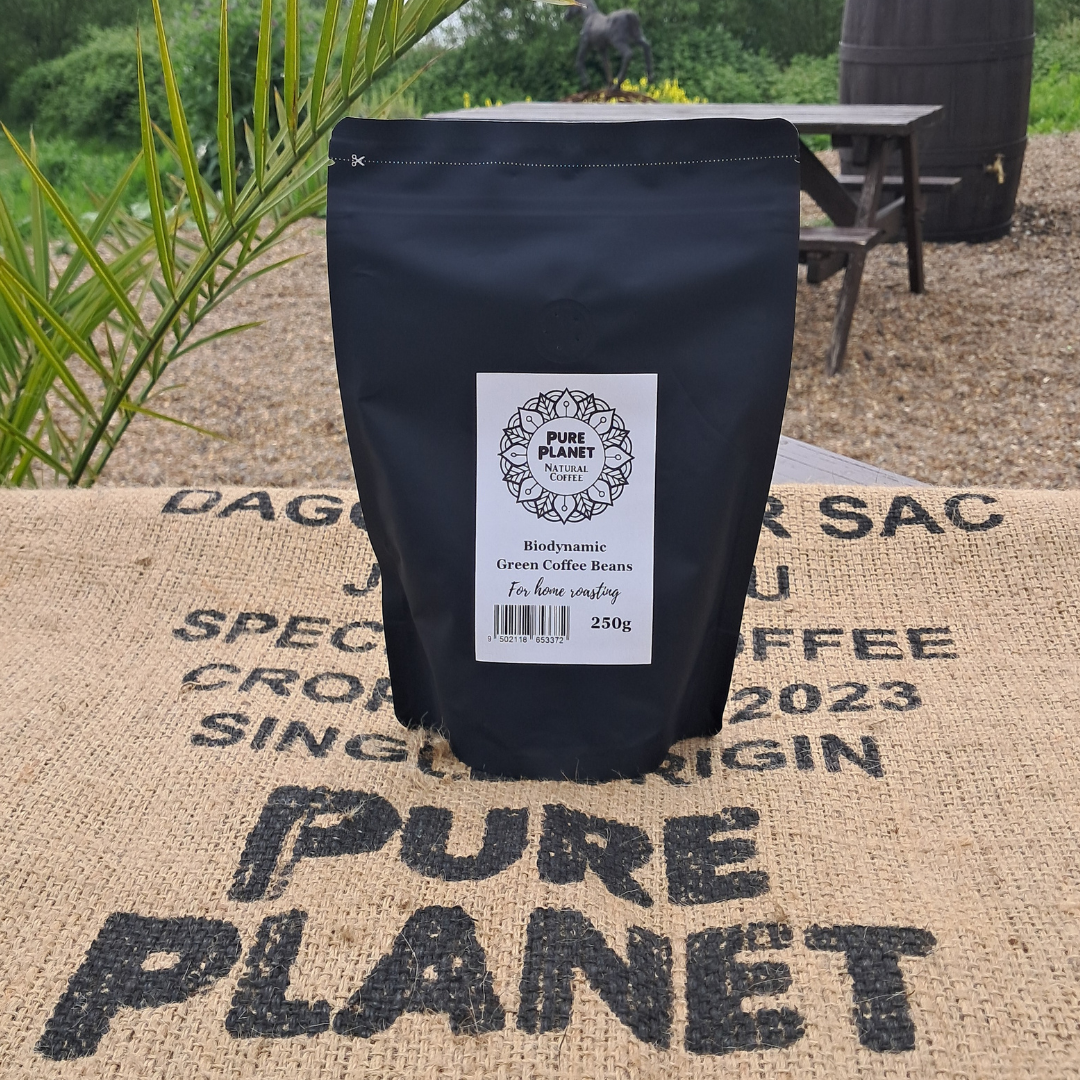
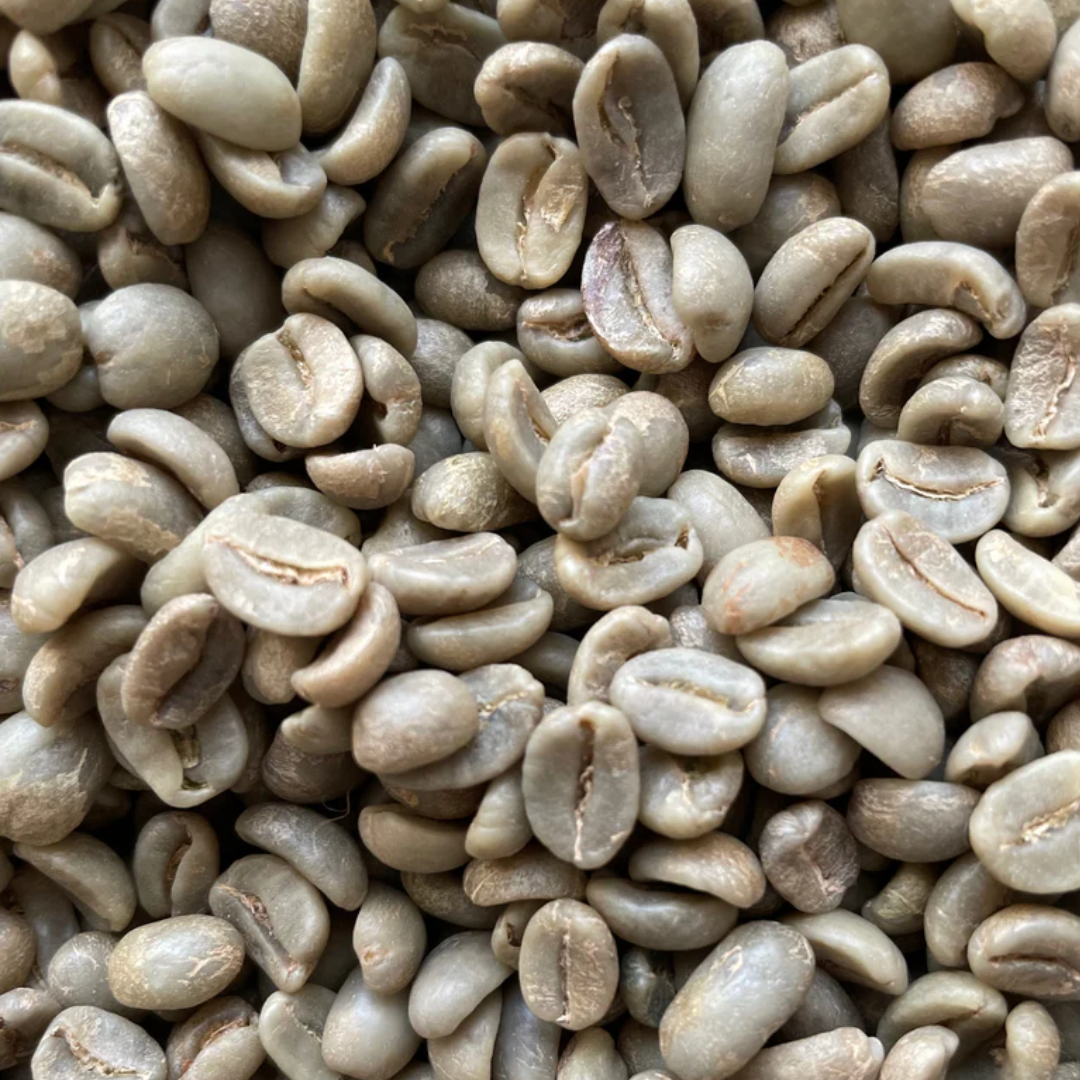
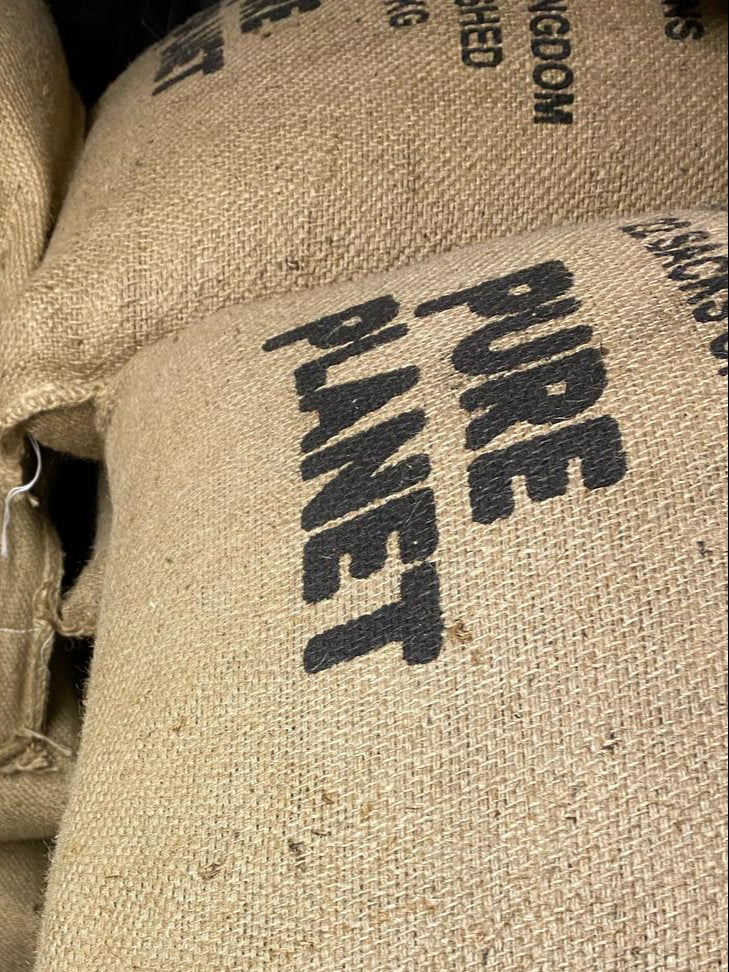
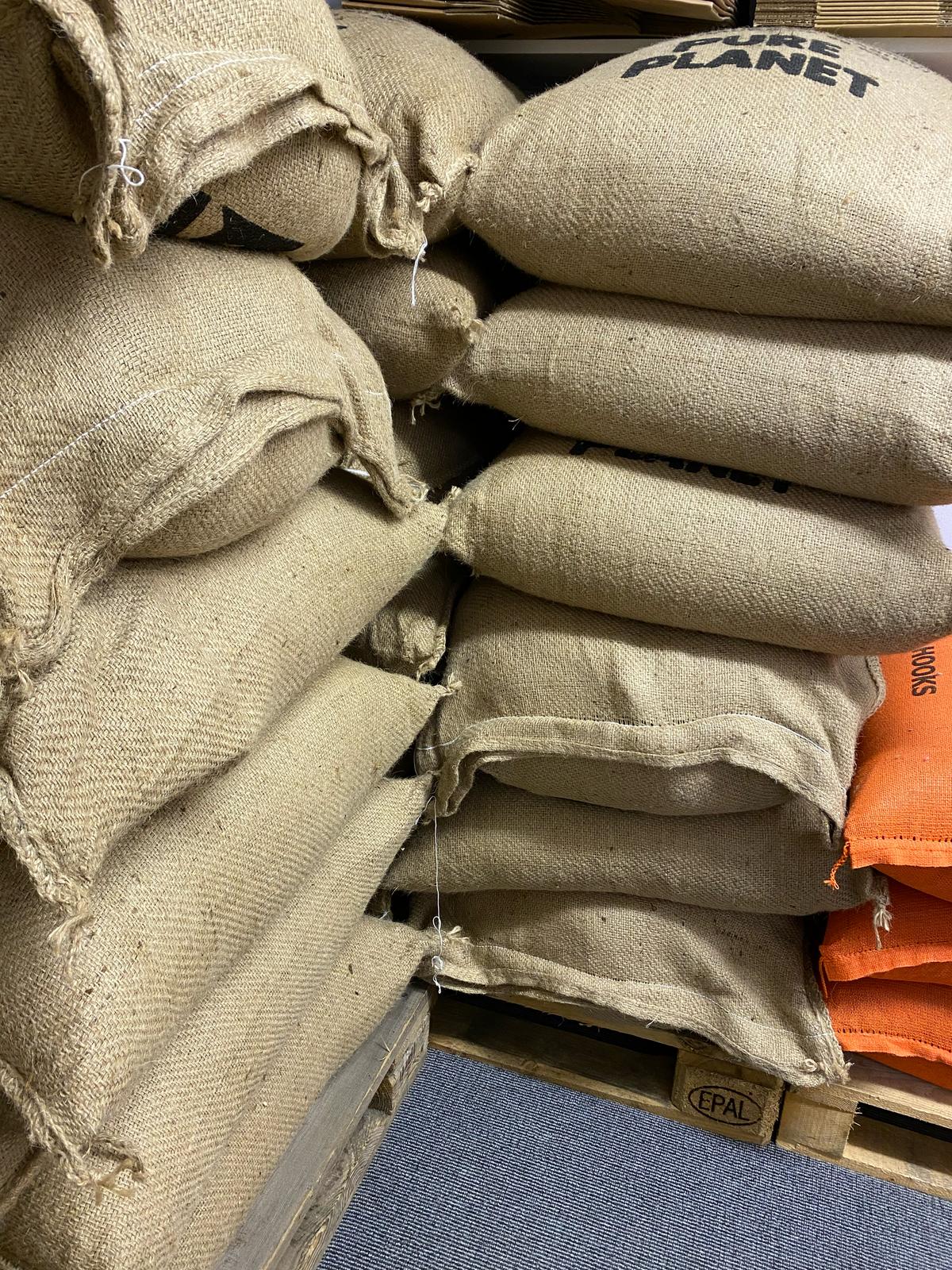
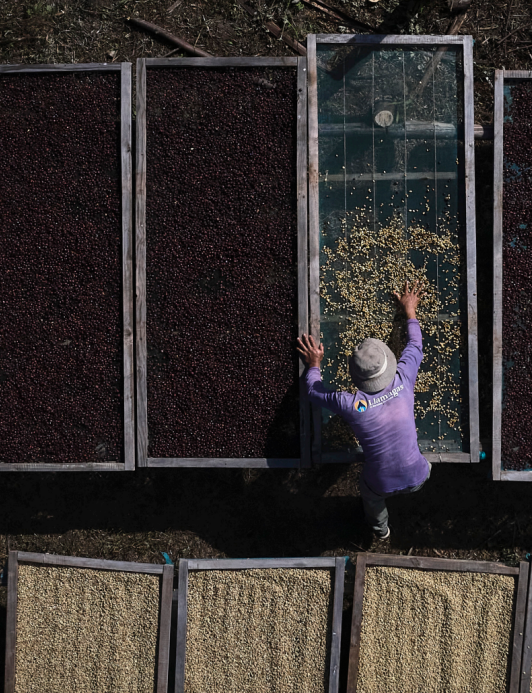
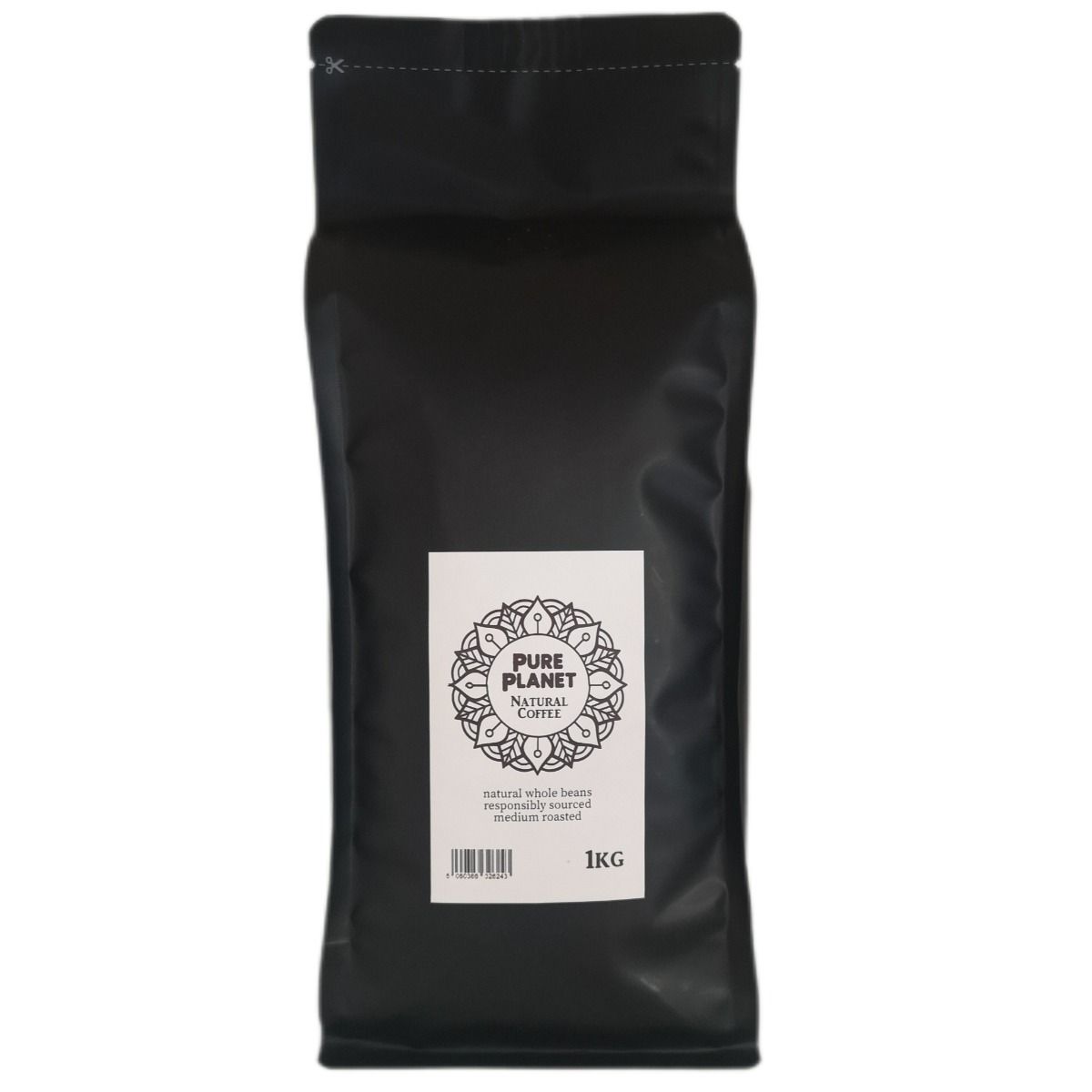
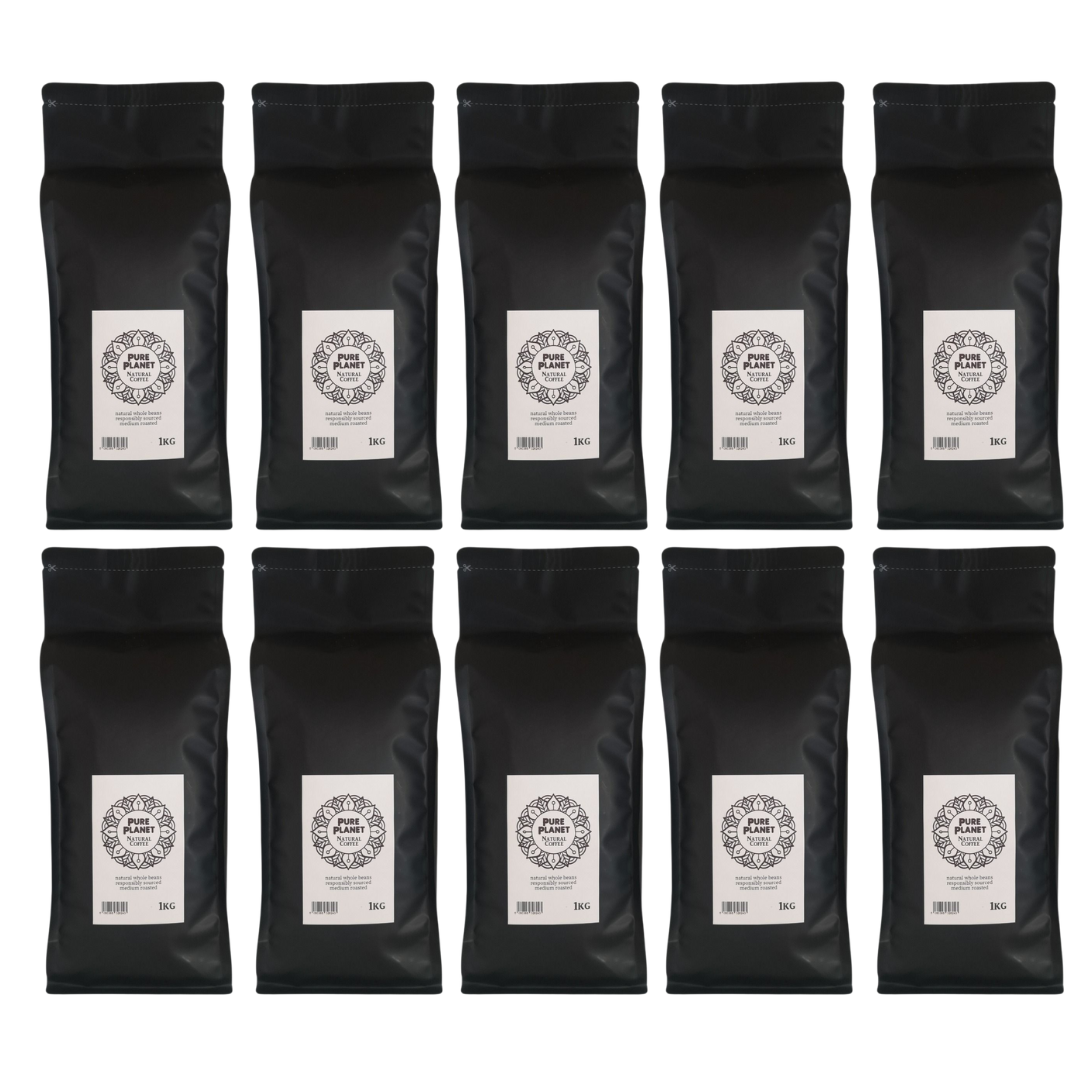
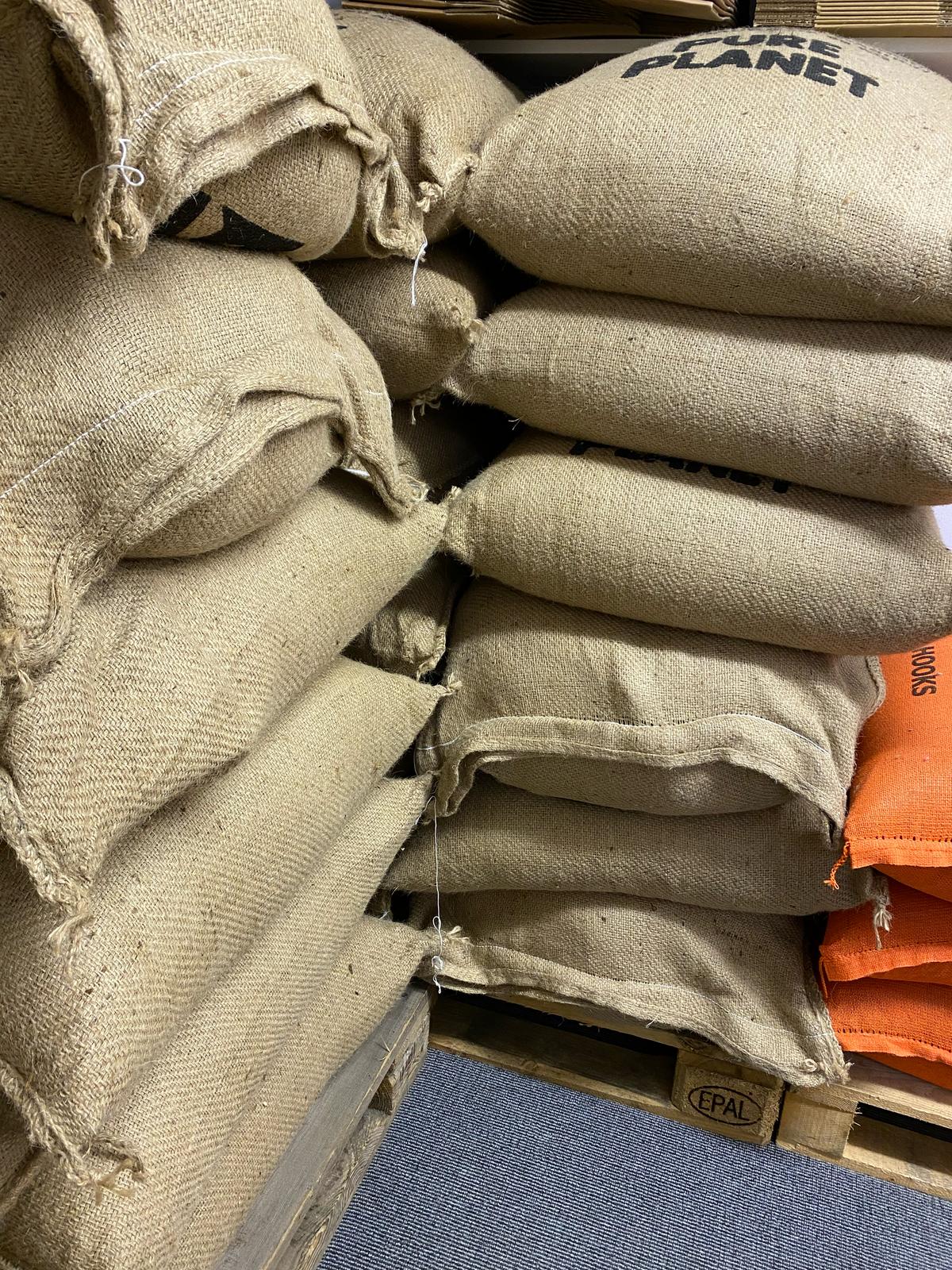

We have high standards when it comes to cleanliness
Pureplanet Natural Coffee is carefully stored to maintain its exceptional quality and purity. Our 69kg green coffee beans are kept in climate-controlled conditions, ensuring optimal temperature and humidity levels to prevent mold growth and preserve freshness. We use breathable, natural fiber bags that allow proper airflow while protecting the beans from moisture and contaminants. By maintaining strict storage standards, we ensure that every batch of our natural coffee remains free from mold and delivers the clean, rich flavor you expect.
Pureplanet Natural Coffee is independently tested and certificated for Ochratoxin A(OTA) and Aflatoxins B1,B2,G1,G2 HPLC.
Behind the scenes producing our speciality Coffee finished product. Roasting, Weighing, Packing all done by hand for the complete quality control

Roasted, Weighed & Packed by Hand
At Pureplanet, our Natural Coffee is roasted, weighed, and packed entirely by hand, ensuring the highest level of artisan quality and care. Each small batch is carefully roasted to perfection, bringing out the rich, complex flavors of our premium, ethically sourced beans. Once roasted, the coffee is precisely weighed and hand-packed in eco-friendly packaging, preserving its freshness and integrity. This hands-on process guarantees that every bag of Pureplanet Natural Coffee delivers a truly authentic, handcrafted experience from bean to cup.
How the Farm loves Mother Earth!
We would love to hear from you!
Subscribe to our emails
Be the first to know about new collections and exclusive offers.
